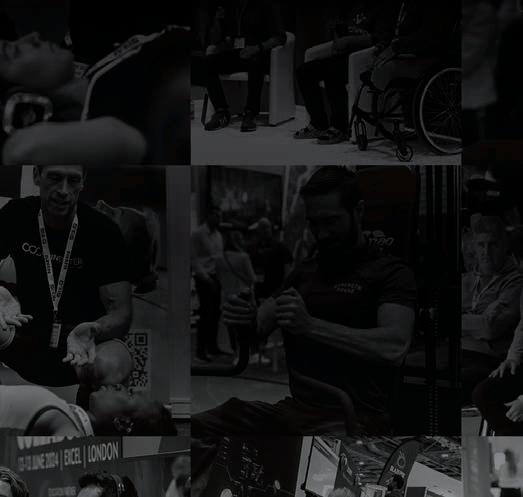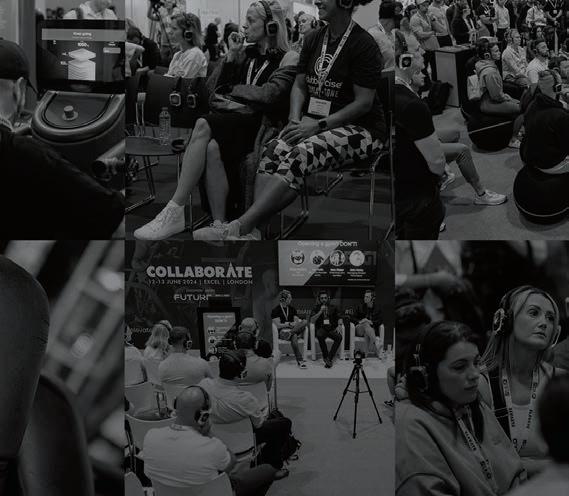PlayNation UK



Play England campaigns for all children and young people to have freedom and space to play throughout childhood.
We work with national partners and other organisations with shared aims to raise awareness about the importance of play. We lobby government to make fundamental policy changes to protect and promote play, and encourage everyone who has an impact

on the lives of children and young people to recognise and plan for children’s play.
Play England has also built up considerable experience and resources to help support individuals and organisations that work in these particular areas:
Government
Local Authorities
Schools
Playwork

We need your support
The new UK government is making positive noises about understanding the importance of play. However, against this positive backdrop, Play England is suffering from a lack of funds to pay for our essential work campaigning for children’s right and freedom to play. Donate today to support our work. www.playengland.org.uk/donate

www.playengland.org.uk
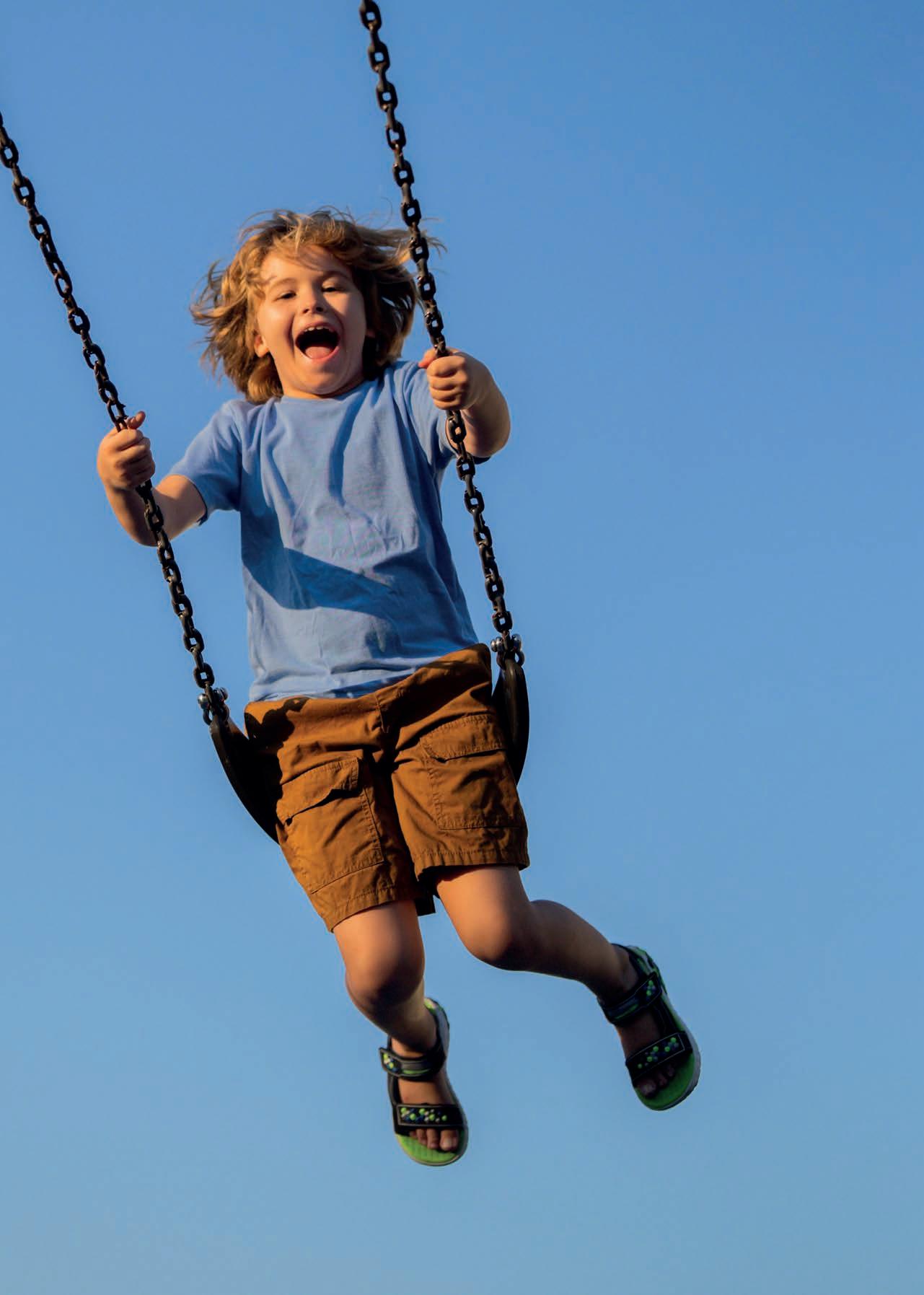








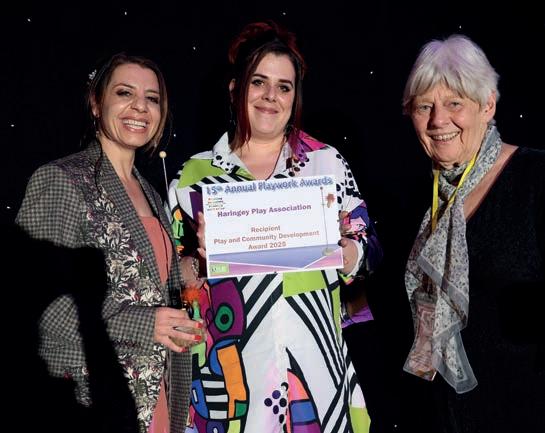

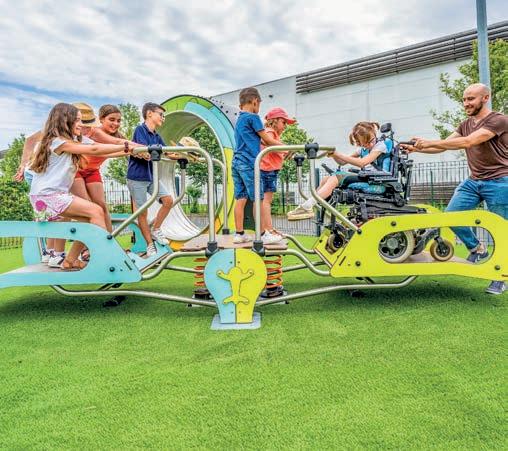


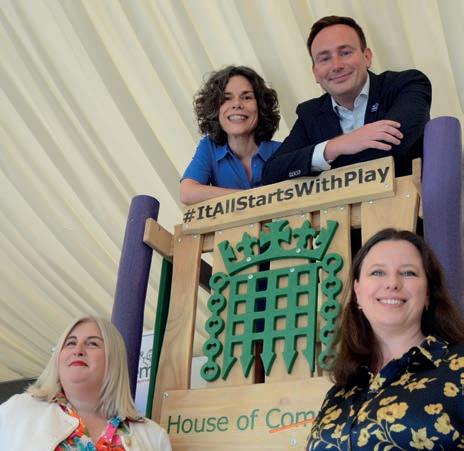
This year’s Elevate event at London’s Excel will
The recipients of the Annual Playwork Awards have been revealed during the National Playwork Conference – the UK’s largest national event




















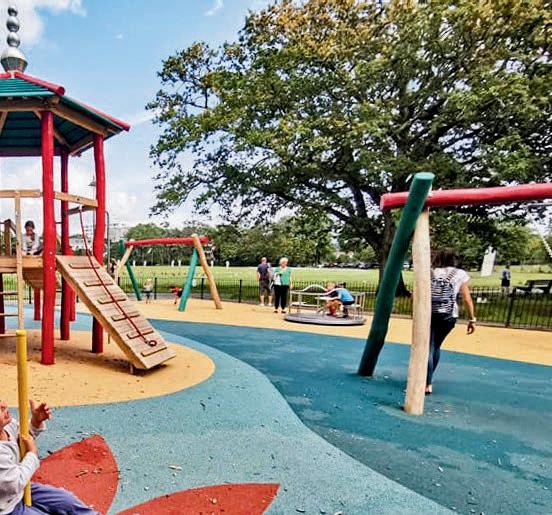
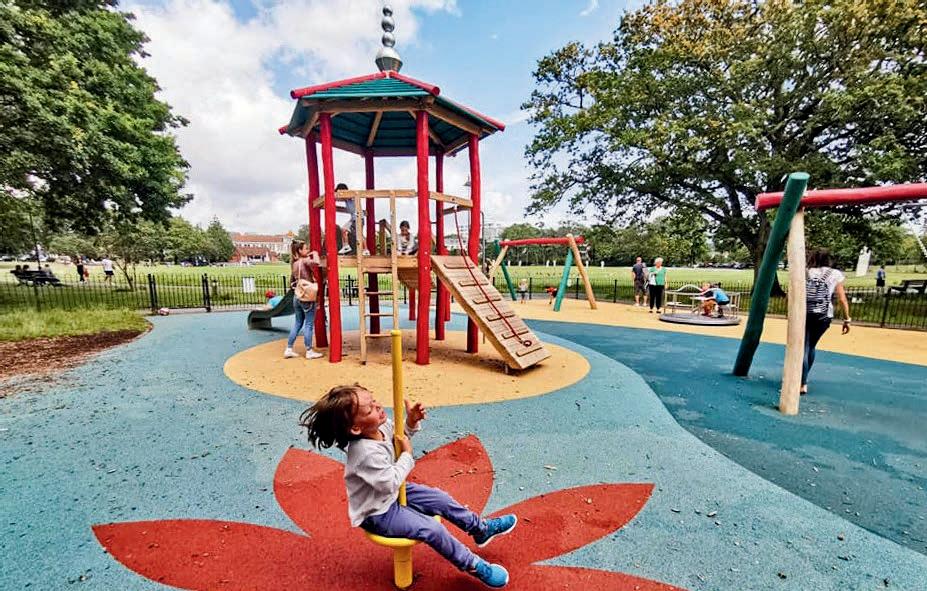





At Jupiter Play, we’re dedicated to delivering playgrounds that leave a lasting legacy. With our unique design approach, clients and end-users are included throughout every stage of the project, from render to reality.



DISCOVER OUR PROCESS today
Design-led Approach

Community Consultation






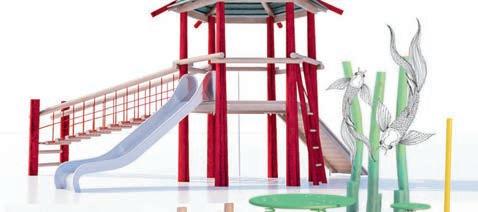





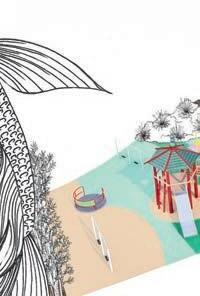



3D Renders and Fly-throughs



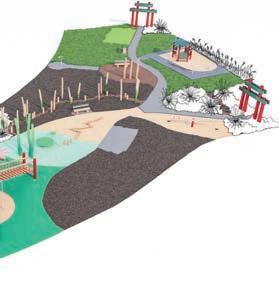

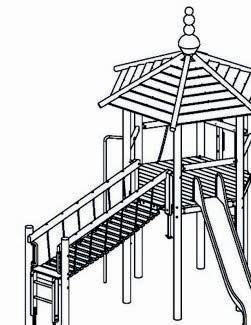

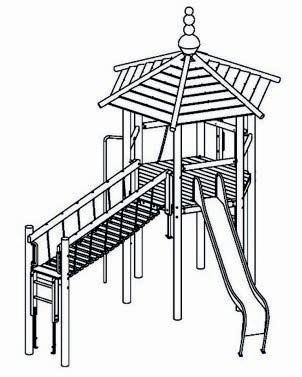

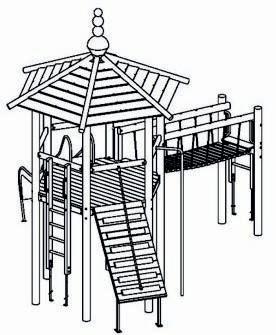
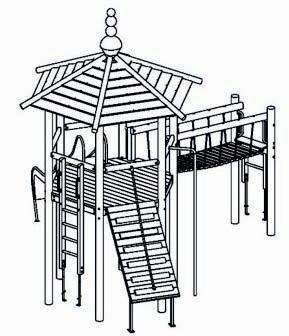


John Challinor
Publisher
PlayNation
john@nationmedia.uk



Maria Cantarella CEO
Association of
Play

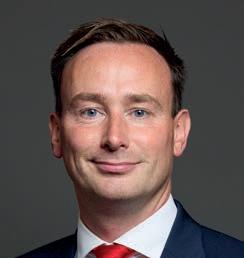
Hayes











PlayNation, in partnership with Play England and SAPCA (the Sports And Play Construction Association), is dedicated exclusively to the dynamic and growing sector of play and physical activity for children and young people. Published bi-monthly, the magazine focuses on the policies, people and places that help young people to play and be more active. Subscribe now and we will email you a complimentary copy of the magazine every two months.
opportunities Contact John E: john@nationmedia.uk http://www.linkedin.com/ company/playnationmag @PlayNationMag FOLLOW US:
PlayNation is published by SportsNation Ltd in association with Play England (www.playengland.org.uk) and the Sports And Play Construction Association (www.sapca.org.uk)
This publication is protected by copyright and no part may be reproduced, transmitted or stored in any print or electronic format without the written permission of the publisher. Every effort has been made to ensure the accuracy of the contents of this publication and PlayNation accepts no responsibility for any error or misrepresentation. Opinions expressed by the contributors and advertisers are not necessarily those of the publisher and we do not accept responsibility of losses or damages arising from them. Printed by BCP Media Group Ltd.


Retail-ready grip socks Drive secondary spend













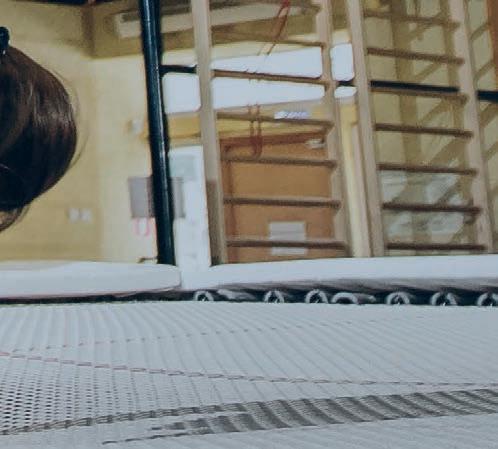





Thousands of youngsters in communities across Swansea are set to benefit from major investment in the city’s play infrastructure, after Swansea Council committed to upgrading more than 60 community play areas.
The upgrades are part of the council’s ongoing commitment to investing in free play areas, which has seen the council agree to a further £1 million for them in the coming year, bringing the total investment so far to £8 million.
The latest to see an official opening is at Brynmelyn Park in Waun Wen, where the upgrades have been designed to cater to both teenagers and infants.
The teenage area now boasts a combination basket swing/flat seat swings, a junior multiplay unit with high and low play features, and an above-ground carousel.
The infant area includes an infant multiplay unit, two bay swings with a disabled seat, a “You and Me” seat, and two cradle seats, a four-person

The new play zone comprises of several distinct areas
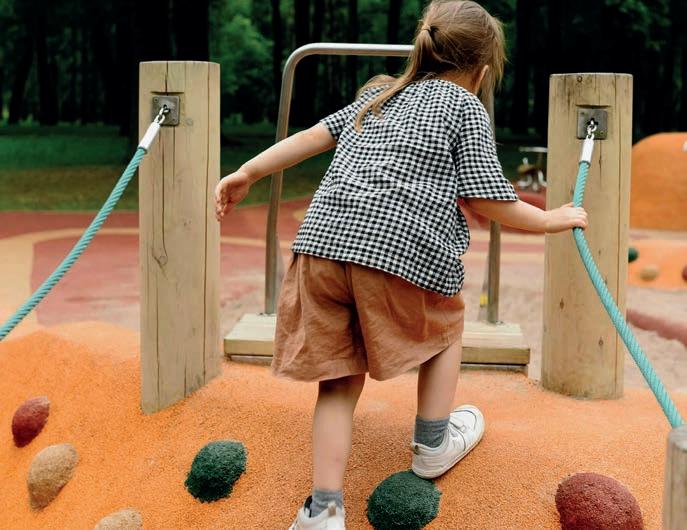
see-saw, a trampoline with drainage incorporated, and a springer.
Non-play items such as two steel benches have also been added to enhance the park’s amenities.
Other recently completed upgrades include those at Polly’s Park in Foxhole Road, St Thomas,

and Ravenhill play area, which has seen a new, safe surface fitted.
Councillor Robert Francis-Davies, said: “We believe our investment in outdoor play for children and young people is probably the biggest investment of its kind anywhere in the UK in recent years.
Imperial War Museums (IWM) has opened the Weston Play Zone at IWM Duxford in Cambridgeshire. The play area is part of the Transforming IWM Duxford project – a 10-year, multimillion-pound plan to ensure IWM Duxford’s ongoing success as a regionally, nationally and internationally important museum, visitor destination and historic working airfield.
The Weston Play Zone features a combination of innovative play equipment and landscape features and provides a play experience that will engage children and their families with the history of Duxford.


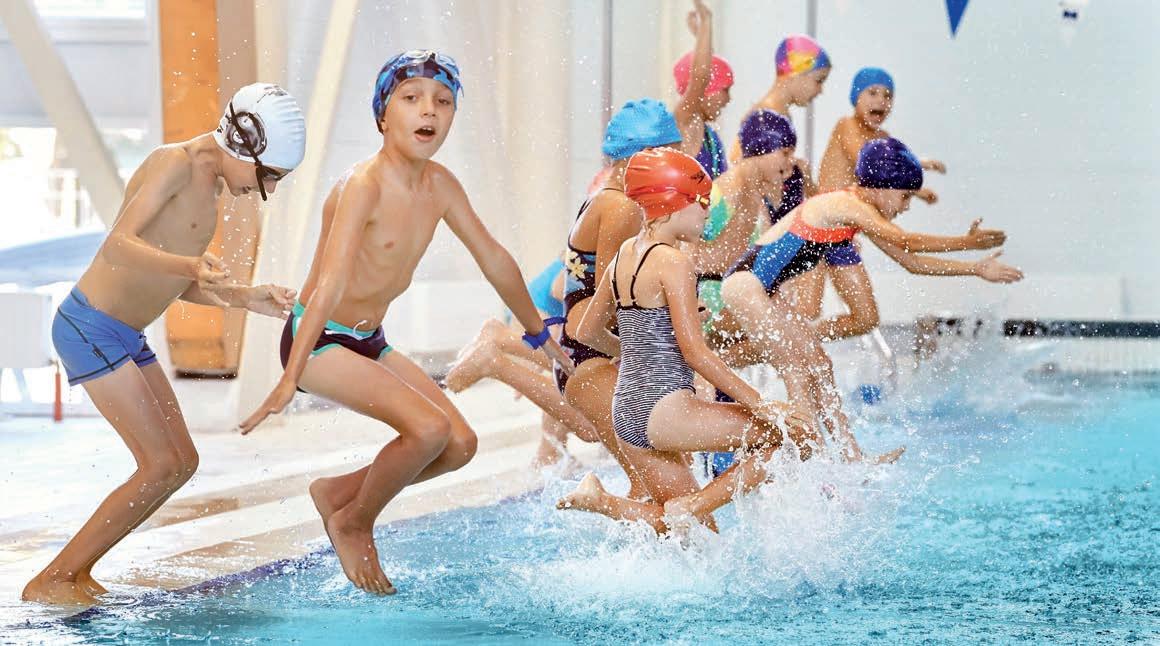
For children, swimming isn’t just about strokes, lengths or laps – it’s about fun, freedom and discovery
Play in the water is more than a way to keep little ones entertained; it’s an amazing tool for learning, development and confidence-building. Encouraging play while swimming is one of the best things we can do for children’s growing minds and bodies. Swimming aid and swimwear supplier BLU Leisure, outlines some key benefits of ‘Play in the Pool’.
Group play in the pool builds teamwork, communication, and emotional resilience. Children learn to share, take turns, follow rules, and navigate new challenges. For many, swimming play becomes a place to build bonds with friends and gain independence, all while laughing and having fun.
Playful swimming reduces stress and supports emotional regulation. The sensation of water is naturally calming, and when combined with movement, fun and laughter, it becomes a powerful tool for reducing anxiety and boosting mood in children.
Before children can learn to swim confidently, they need to feel comfortable in the water. Structured play, like
chasing floating toys, splashing with friends, or jumping in from the side, helps children get used to water safely and playfully. This lays the foundation for learning greater swimming skills without fear or hesitation.
Playful movement in water helps develop strength, balance, and coordination. Whether they’re pretending to be dolphins or racing to retrieve pool toys, children are unknowingly improving their gross motor skills, lung capacity, and muscle tone, all in a low-impact, friendly and playful environment.
The pool opens up a world of imaginative play. A swimming session can quickly turn into an underwater treasure hunt, a sea creature adventure, or a floating obstacle course. This type of unstructured play nurtures creativity, curiosity, and problem-solving skills that go far beyond the pool.
Parents, instructors, and leisure centres can all help by creating environments that balance safety with freedom, providing toys, encouraging exploration, and ensuring children feel supported, not pressured. By embracing play in the pool, we’re not just raising better swimmers, we’re nurturing stronger, happier, and more confident children. For help with building a strong branded offer across Swim Aids, Swim Packs, Staff Uniform (in and out of pool), please contact BLU Leisure.





PlayBoard NI is currently engaging with 9 to 11-year-olds through Spaces to Be, a mental health and wellbeing programme for children and young people. The programme is delivered as part of the OUR Generation project in primary schools, community groups and school-age childcare settings across Northern Ireland and the border towns of County Louth and County Monaghan in the Republic of Ireland.
Spaces to Be empowers children through play to Increase mental health literacy; enhance emotional resilience; develop self-help and coping sills; encourage inclusivity and acceptance of difference; and Increase knowledge of community.
The programme involves staff training and children’s play sessions. The play sessions include a range of practical and playful exercises for children to support them to build characteristics closely associated
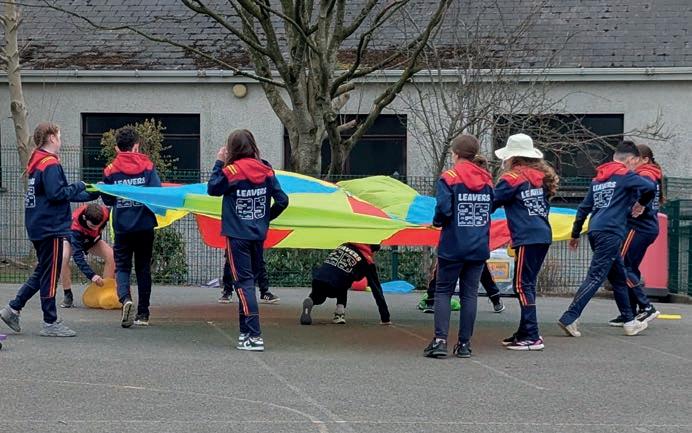
with high levels of resilience, support their positive mental health, and as a mechanism for positively addressing differences. These complex issues are explored in an indirect and playful way by providing an exciting and free-flowing play environment, filled with a range of
fun and exciting invitations to play. Playboard NI said: “We believe that when children and young people are provided with the time, space and permission to play, they will explore and learn in a way that best suit their needs and interests, helping them to reach their full potential.
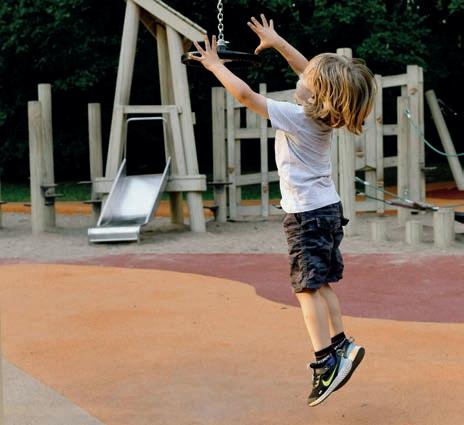
Play England wants local authorities to have a duty to protect existing play spaces
Play England has submitted evidence to the Planning and Infrastructure Bill Committee, urging the inclusion of a statutory Play Sufficiency duty to ensure every child has access to safe and inclusive play opportunities.
In its submission, Play England proposes a new clause to be introduced in the bill which would require authorities to undertake four actions. These are to regularly assess and publish reports on the sufficiency of play opportunities; integrate findings into local plans and infrastructure strategies; protect existing play spaces and require new developments to include quality play areas; consult with children, families, and communities on play provision.
The amendment aims to embed play into planning decisions alongside housing, transport and utilities.
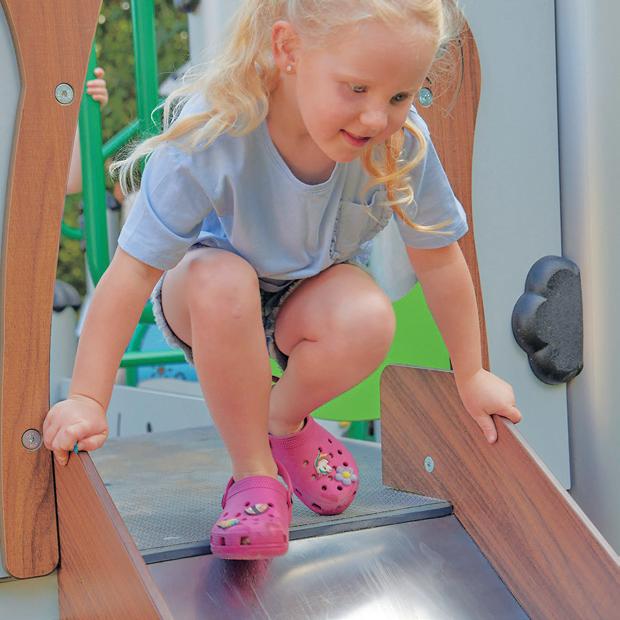
We design play equipment and play spaces that open up play to all abilities.
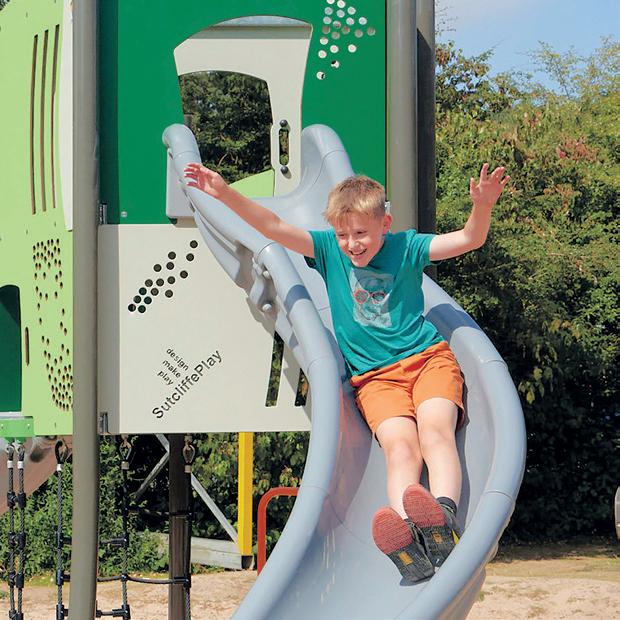



Our skilled engineers and fabricators all take pride in putting quality first.
Your local British Manufacturer leading the way with sustainability, quality and after sales support.
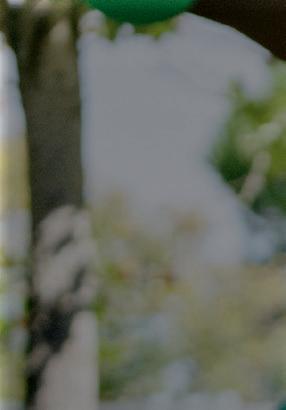


Sourcing and manufacturing locally is the most sustainable solution for all. sutcliffeplay.co.uk
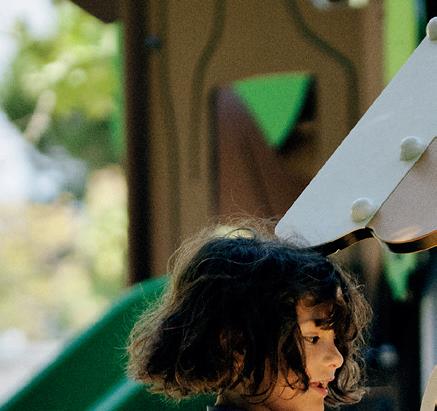
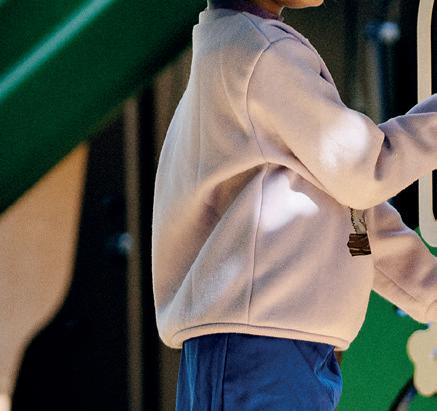

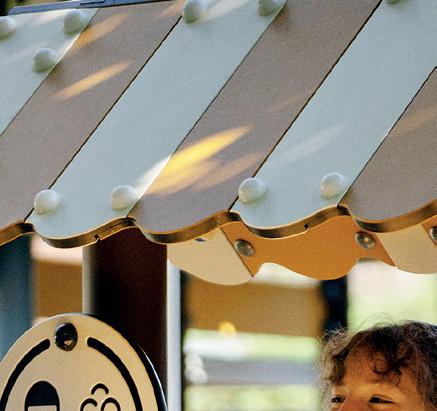




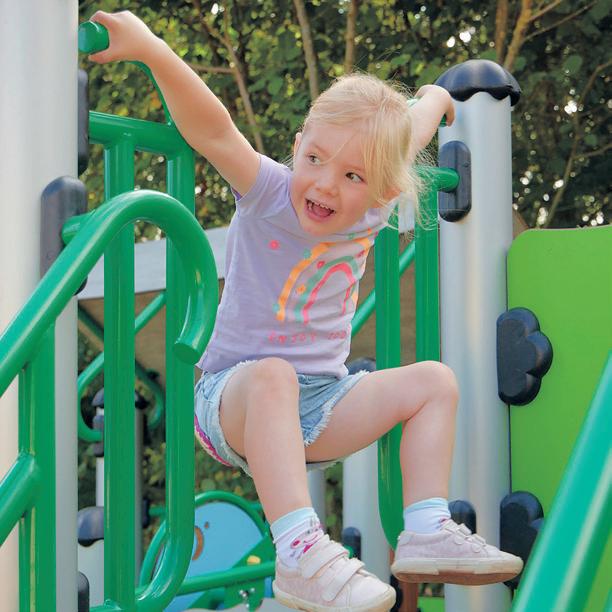




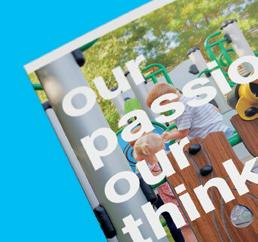
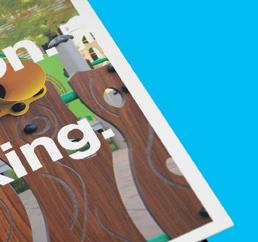




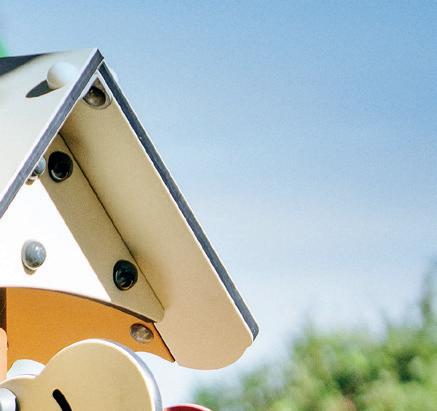


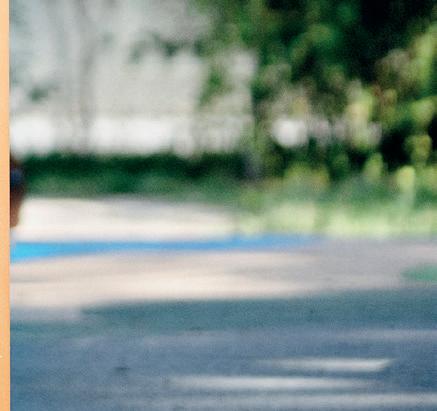

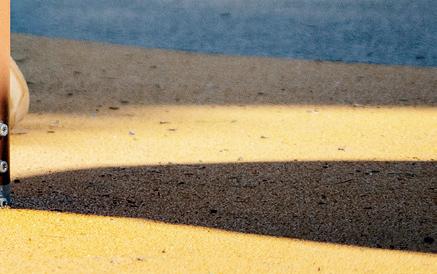
Plans have been submitted for a new youth and community centre in St Helier, Jersey.
Scheduled to be delivered in the north of the town by the end of June of 2028, the proposed centre will contain a range of modern facilities including a sports hall, roof-top kick pitch, climbing wall, fitness rooms, dance studio, boxing gym, sensory room, food preparation facilities, multi-functional use rooms, and eight counselling rooms as it will be the main hub of the Youth Enquiry Service, YES.
The project is a result of the Jersey Government’s Common Strategic Policy, of which one of the priorities is to deliver a plan to revitalise Town.
Subject to approval in the summer months, building works on the new centre are expected to begin towards the end of the year. The new facilities will be based on the old Ann Street Brewery site, which has been vacant
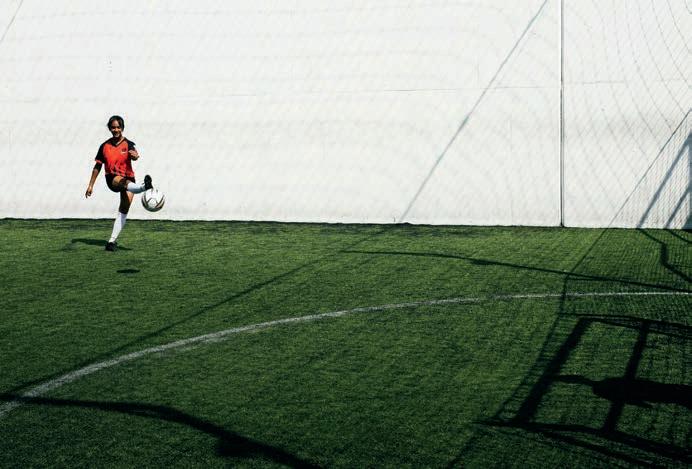
Facilities at the centre will include a roof-top kick pitch
for several years. Throughout the last year, officers from the Jersey Youth Service, JYS, consulted with residents in the nearby area – as well as young people and their families – and have incorporated their feedback on the suggested plans.
Assistant Minister for Children and Families, Malcolm Ferey, said: “These facilities will have a significantly positive impact on our children, young people and their families in town, and will offer them a new service within modern facilities.”
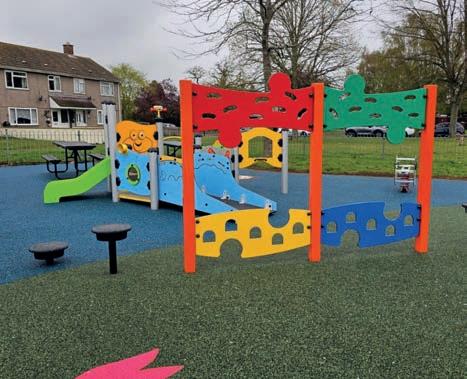
A range of new activities – including accessible equipment – have been installed as part of a playground redevelopment in Abingdon, Oxfordshire. Vale of White Horse District Council secured funding for a project to refurbish the Cotman Close play area in the town.
The new-look play area includes swings, a rope bridge and a trampoline among other equipment. Work on the site is now complete and it reopened in mid-April during the school Easter holidays.
Families can now enjoy fully accessible play equipment and picnic tables in the area. A butterfly ‘game station’ offers a combination of sensory, tactile and fun activities and puzzles, while an inclusive toddler unit also features a wheelchair ramp making the area more accessible.








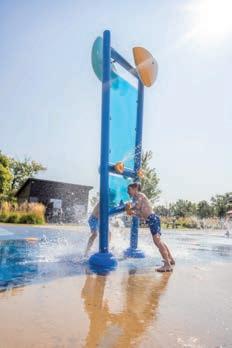



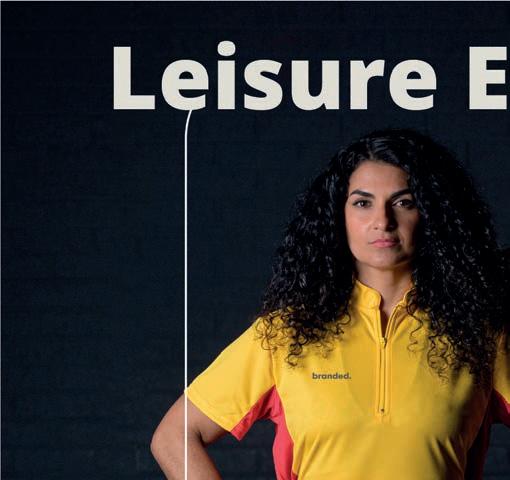

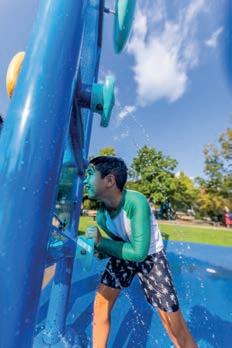

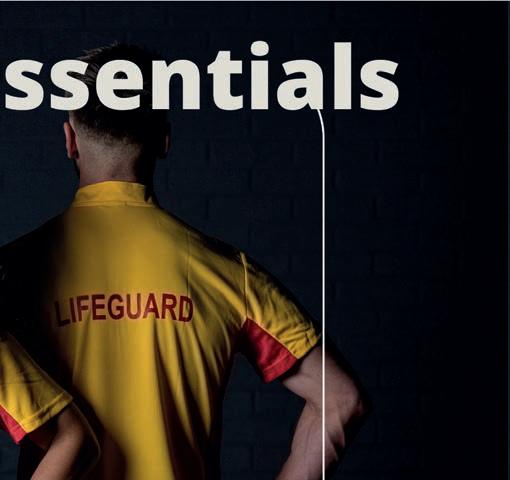



Hold onto your seesaws, everyone, play is finally making waves in the political world. After years of being pushed to the sidelines, left gathering dust – like the forgotten corner of the playground with the wonky climbing frame – play sufficiency legislation and a new national play strategy are finally being thrust into the spotlight. And honestly, yes…I did get slightly emotional writing this piece and hearing about what’s coming next.
The launch of the first-ever All-Party Parliamentary Group (APPG) on Play isn’t just another policy discussion buried in government reports; this is the long-overdue recognition of the fundamental role of play in children’s lives. Play England and incredible advocates – such as MP Tom Hayes –are finally pushing forward what we’ve known all along. Play is not just a way to pass the time, it is a right, a force for development, a catalyst for creativity, and the foundation of childhood itself.
I grew up in an adventure playground, and that experience shaped who I am today. It was in that wild, muddy, joy-filled space that I learned what true play really means. Now, as a playworker,
consultant, and advocate, I strive to make sure children everywhere get the same opportunities, because play isn’t just nice to have, it’s essential.
In January, Tom Hayes MP led the first parliamentary debate on play in over a decade. It didn’t just highlight playgrounds, it championed unstructured, adventure-filled, confidence-building, risk-taking, totally essential play. The kind where kids climb things, build forts out, and most importantly, learn and grow through every moment of it.
Bob Hughes’ Play Types Framework has long recognised that rough-and-tumble play is one of the most natural and instinctual ways children develop. When kids roll around in the grass, leap from logs, or create imaginary battles in the playground, they’re not just letting off steam, they’re developing crucial social and emotional skills.
Play England’s push for a national play strategy is making serious waves, ensuring play opportunities exist everywhere. That means adventure playgrounds thriving, free play being celebrated, and playworkers being recognised for the superheroes they truly are. This isn’t just about swings and slides, it’s about shaping spaces where children feel free to explore, imagine, and discover.

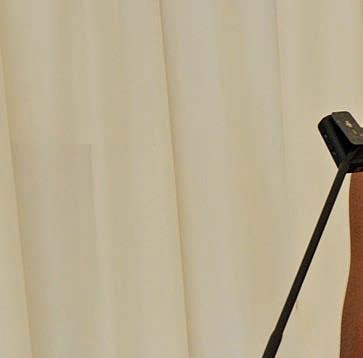

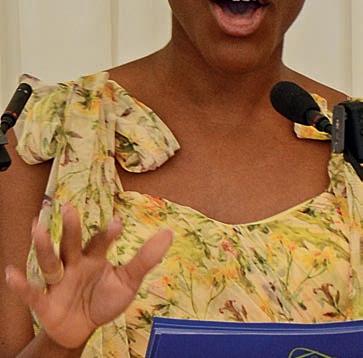


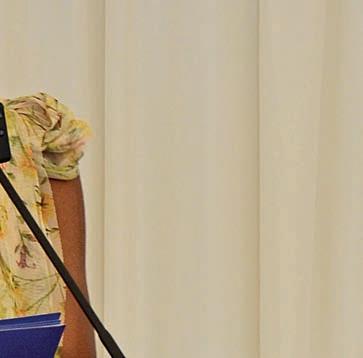

Ogunsanya-William speaking at the launch event of Play England’s new strategy
A playworker is like the mischievous storyteller who whispers “what if?” into a child’s imagination. They curate spaces where curiosity leads the way, balancing independence with the thrill of risk-taking. They don’t just supervise play, they champion it, ensuring every child, regardless of background or ability, has the freedom to engage in meaningful and instinctual play. Whether in adventure playgrounds, schools, or community spaces, playworkers ignite confidence, spark creativity, and embrace the joyful chaos of childhood exploration.
This new national play strategy is a revolution in how we view play. We are finally shifting away from seeing it as an afterthought to embracing it as the beating heart of childhood. The joy of play is contagious, and through this strategy, playworkers, parents, educators, and policymakers alike can amplify this mission and make play a priority in every child’s life.
It’s time, finally, for play to be spoken about, protected, and celebrated. And I, for one, couldn’t be more ready for this moment.
Let’s make sure play stays on the agenda, because every child deserves a world where play is unstoppable. Who’s in?
Play England has published its 10-year strategy to “make play normal again” and to ensure every child has both a right and access to free play
Play England has published its new 10-year strategy, which has a vision to “make play normal again”. Launched at an event at the Houses of Parliament, the strategy’s main aims are to help create a society in which all children have the freedom to play and where play is an “accepted and visible part of everyday life”. Titled “It All Starts With Play”, at the heart of the strategy sits an ambitious objective: to restore a play-based childhood for all children in England by 2035.
It All Starts With Play highlights how supervised activities and screen-time have taken over from unsupervised, “free” activities in which children can explore, discover and be physically


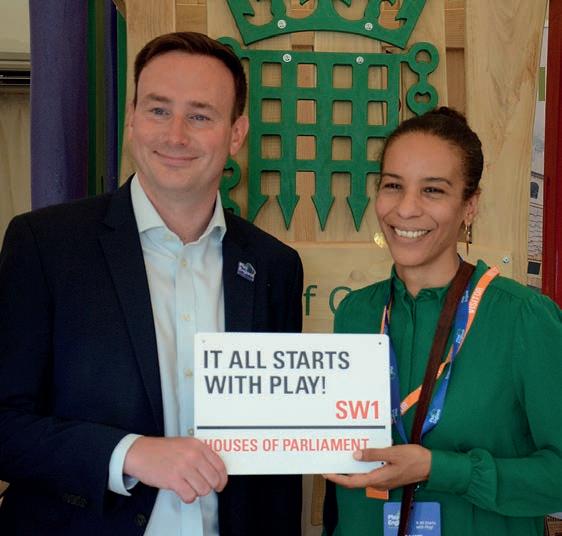




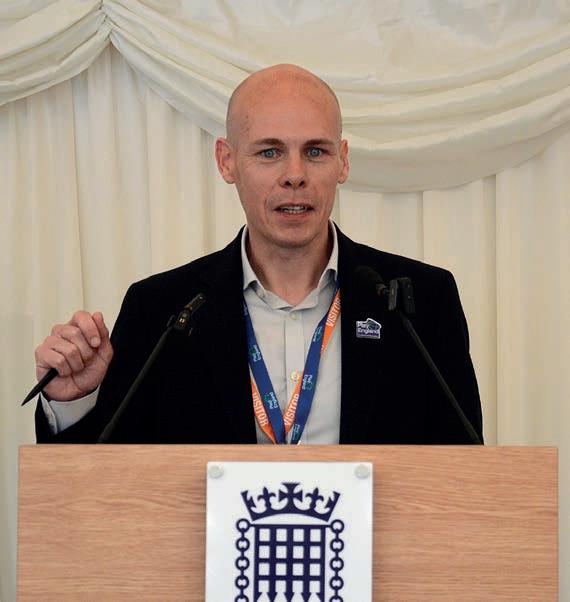

active without being guided or limited. This has been caused by the loss of playgrounds and areas in which children can safely play – with any play time often limited to school hours.
According to the data presented in the strategy, a child’s opportunity to play freely and safely can also depend entirely on where they live, with urban areas particularly providing limited opportunities to them.

“When children are denied time, space, opportunity and freedom to play, the consequences ripple through every aspect of their lives – across the systems that surround them and across wider society,” Play England states in the strategy.
“Play deprivation is not just about missing out on fun, it means missing out on friendships, independence, physical activity, expression and the challenges that help children build confidence and resilience.”
Among the several MPs attending the launch were
Deirdre Costigan, Tom Hayes, Jas Athwal, Michelle Welsh and Sarah Russell
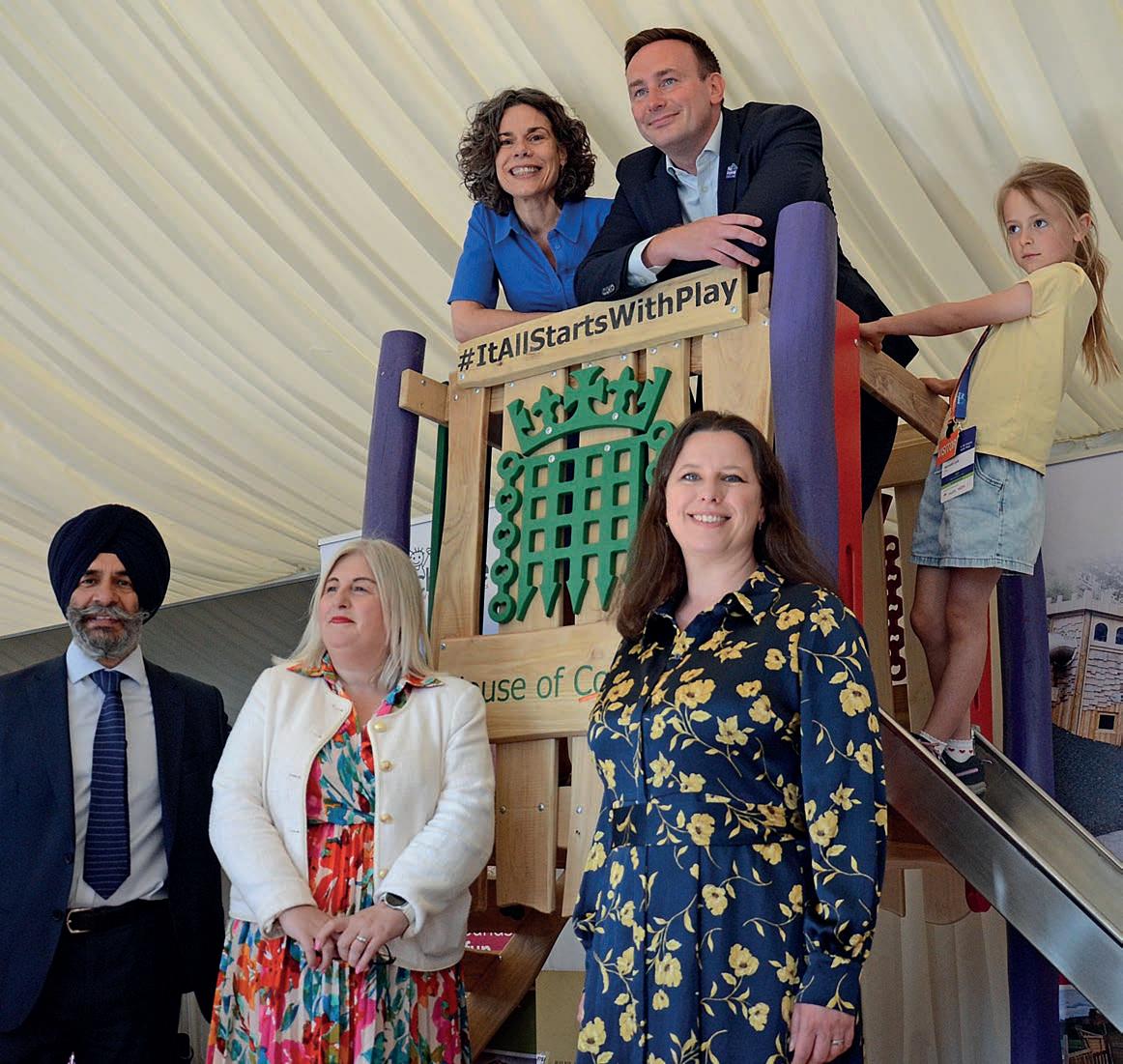
We don’t need to x children, we need to x the system. And it all starts with play
The data backs up Play England’s central claim – that play is essential to childhood and society, but is far too often ignored as a priority. According to Eugene Minogue, Executive Director of Play England, play is how children learn, grow, connect and thrive.
“Yet, for too long, play has been neglected in policy, practice and public life,” Minogue says. Children’s freedom to play has steadily eroded – by fear, traffic, time poverty, risk aversion nd shrinking space. The result is rising inequality, worsening mental health and a generation of children growing up disconnected from their communities and from their own freedom.”
In the strategy, Play England lays out plans to combat the “play deprivation” and to restore a play-based childhood for all children in England by 2035. It aims to do this through four interconnected priorities, which are:
Creating play-friendly environments wherever children are and spend time – at home, school, on the street, in the parks or in digital spaces.
Recognising and supporting people who enable play opportunities – with playworkers at its core and a wider ecosystem of play enablers.
Building a resilient play sector and rebuilding the infrastructure for play through national policy, legislation, research and funding.
Re-norming play as an essential, accepted part of childhood – shifting culture from riskaversion and control to trust, freedom and joy.



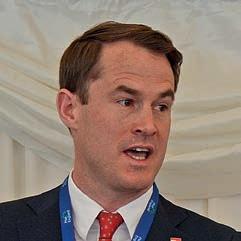
Speakers included Dianne Larrington, Amber Ogunsanya-William, Panash Shah and Charlie Howard
“This strategy is a call to action,” Minogue says. “Our aim is to make play a normal and visible part of everyday life again. We want a shift to a culture where play is recognised, accepted and protected at school, in our streets, in our communities.
“We believe play deprivation is having a negative impact on both the education and development of children today – and we’re committed to helping to realise a child’s right to play.
“Our intention is to combine our expertise and networks to embed the principle of ‘play sufficiency’ during the school day. Together, we will champion the value of play in supporting children’s physical, social and cognitive development – and support schools create and harness more unstructured, active, and playful moments every day.
“This is not just about building new playgrounds. It’s about embedding play in how we build communities – so children don’t just have homes, they have a childhood.
“We don’t need to fix children, we need to fix the system. And it all starts with play.”
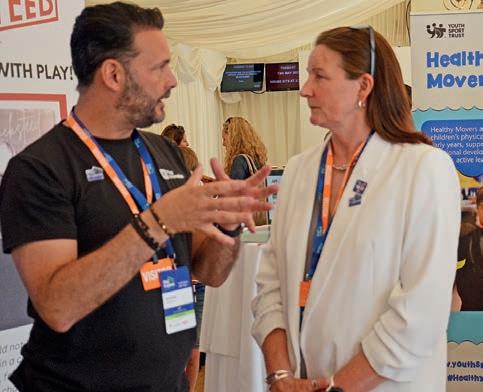
The document is described as a “living strategy”, not a static document. Intended to guide Play England’s actions and priorities over the next decade, the organisation’s plan is to deliver it through a three year cycle of “reflect, reinvigorate and renew”. The approach is designed to ensure the strategy remains dynamic and adaptive.
Play England will also set up what it calls Children’s Assemblies to help deliver the strategy. These will be structured, child-led forums to embed children’s voices in strategy renewal, national policy and local action.
When it comes to measuring the strategy’s success, Play England has outlined some ambitious goals it wants to reach.
“We will know we are succeeding when all children have equitable access to safe, inclusive and enriching opportunities to play,” the strategy states. “Success means local and national systems recognising and protecting children’s right to play and for play to be not



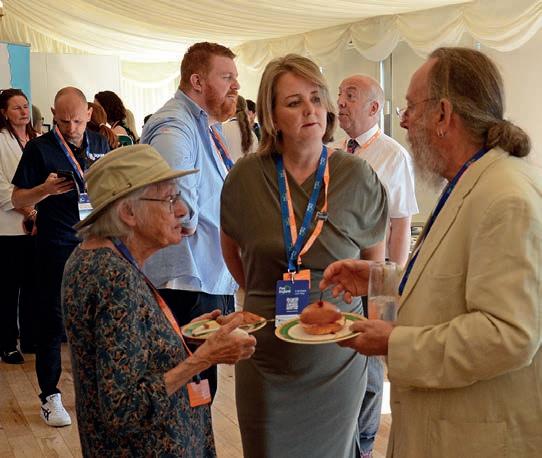




































































seen as a luxury – but essential for healthy childhoods and thriving communities.
“But above all, success will be defined by children themselves: when children can freely, safely and joyfully play in their homes, streets, schools and communities.”
The strategy is being published at a time when there is real momentum in driving play up the national consciousness – as well as the political agenda. The best example of this was the Westminster Hall debate earlier this year (January 2025), which marked a significant turning point in the national conversation on children’s play.
Led by Tom Hayes MP, the MP for Bournemouth East – who has become an important advocate for play – the discussion expanded far beyond the topic of ‘playgrounds’, powerfully emphasising the importance of unstructured free play, adventure playgrounds, active play and the essential role of Playworkers. Crucially, MPs from across the political spectrum united to call for inclusive, accessible, and equitable play spaces, places, and provision for all children.
The spotlight that the January debate shone on play – and how it is fundamental to children’s physical health, wellbeing, social development, and cognitive growth – has clearly worked. The political work on play has since increased and the Play England strategy launch was attended by a number of MPs.
There was also a big reason for the launch to take part at the House of Commons. This was














revealed when Tom Hayes MP announced the launch of the first-ever all-party parliamentary group (APPG) on play – alongside a campaign to bring in a “play sufficiency duty” in England to match those in Wales and Scotland.


“Playgrounds are not part of statutory provision for councils at the moment,” Hayes said, announcing the APPG and the plans for the new duty. “We want to change this and it would be a big change.”
He added that the change in the law would be “no burden, no cost” to local authorities.
“We want to build more playgrounds and we want them to be inclusive for all children. The money for this can come from developers’ section 106 funds that they provide when they build new homes.”
As well as the full strategy document, Play England also launched a children’s version of the paper – as part of its commitment to involve children in its policy-making. The 10page version uses language children recognise and can be downloaded by schools. To read the full strategy document, as well as the children’s version, visit: www.playengland.org.uk/strategy


Soft play grip socks are a great way to boost hygiene, safety and ancillary spend in soft play sites. In this buyer’s guide, Taylor Made Designs explain the features to look out for when shopping for a branded grip sock
A high-traction grip sock behaves differently depending on whether it’s a toe grip, half grip or full grip.
FULL GRIP: The sole grip pattern extends across the whole sole, from toe to heel. Full grip socks are ideal for sites with trampoline equipment.
HALF GRIP: This is the most popular style for soft play centres. Half-grip patterns run from the toe to just beyond the ball of the foot. Children can climb and run safely on gangplanks, but the lack of grip on the ankle keeps them safe on slides.
TOE GRIP: Also known as quarter-grip, this

A fully branded experience

breathable sock grip style works beautifully with a custom-woven sock. Toe grip patterns typically cover the toe and part of the ball of the foot. This sock style offers a reasonable amount of traction and can help keep feet cool on high-intensity soft play courses.
Bespoke grip socks are the best way to elevate guest experience and drive secondary spend on your site. Bespoke-branded grip socks can be completely tailored to match your brand and manufactured for as little as £0.49 per pair.

A broader range of styles


Your branding can cover every square inch of a grip sock. You can style the grip design, materials, weave, arch and cuff details to match your logo and colours.

Want more than one sock style? Give visitors a choice of sock! Offering a number of different styles can boost sales and help you learn more about what your guests want.
Seasonal variety

Some soft play sites release specialedition socks to tie in with school holidays, seasons or major events. These socks are perfect for maximising spend with recurring customers.
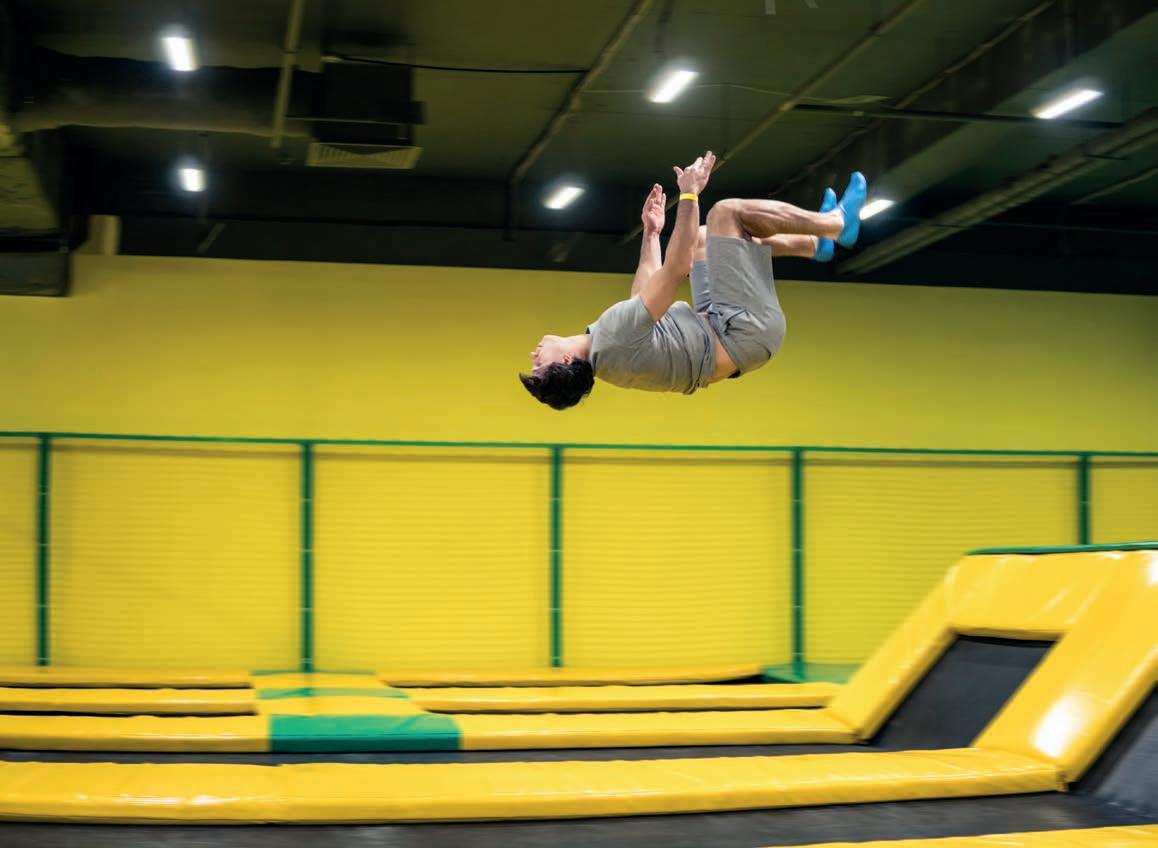
Questions to ask your grip sock supplier:
Cotton or polyester?
Grip socks are typically made from either cotton or polyester fibres, with elastane used on arch bands and ankle cuffs. Polyester socks tend to be the most popular option for kids play centre grip socks: thread colours appear more vibrant, and fabric dries faster.
Mix of sizes?
Some manufacturers will produce a mixed shipment of kids and adult sock sizes. For soft play centres, it’s important to ensure that you only receive sock sizes for the precise age groups you’re serving.
PVC or silicone sole?
A grip sock’s sole is printed directly onto the sock using either a PVC or silicone liquid that part-soaks into the sock sole fibres. Taylor
Made Designs use a double-thick German-made PVC, which gives a high-traction, long-lasting grip.
Where will my socks be stored?
Many soft play centres have limited stockholding space, which is problematic when placing orders of 5,000 socks or more. That’s why Taylor Made Designs offer a stockholding and fulfilment service. Excess stock can be held at their Christchurch warehouse and delivered to play centre sites on an ad-hoc basis.
How soon can socks be delivered?
Off-the-shelf socks can be delivered in 2-4 days, whereas bespoke socks typically take anywhere from 6 to 9 weeks.
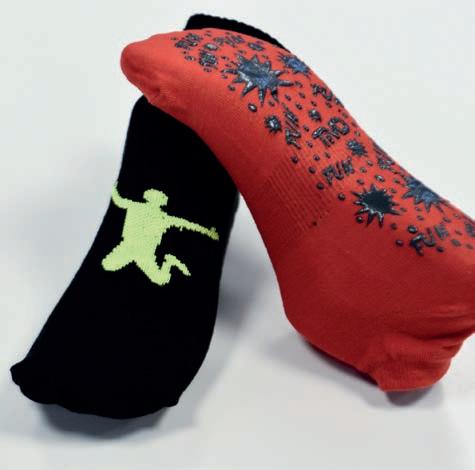
● Since 1993, Taylor Made Designs have been producing exceptional branded products for the Leisure sector. Learn more about Taylor Made Designs and their soft play grip sock capabilities at: www.taylormadedesigns.co.uk/ our-products/soft-play-grip-socks/
When the pandemic hit the indoor play centre sector hard, a group of operators got together to set up a trade body to represent them. Since its launch in 2020, the Association of Indoor Play has grown to represent more than 370 centres
Thursday 5 June will mark the second edition of the AIP Conference & Annual Awards. It’s a perfect time to reflect on how well the UK’s indoor play sector has reacted and recovered from the pandemic. At the heart of the recovery is the Association of Indoor Play (AIP), which is looking to transform the indoor play landscape.
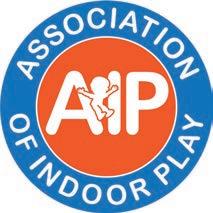
Founded during the pandemic by a group of passionate operators – and led by Janice Dunphy of Web Adventure Park in York – AIP now represents more than 370 member centres and also works with 50 trade members. Its mission is to champion the indoor play sector and to ensure operators of all sizes have a direct voice into government.
concerned about smaller operators being drowned out by larger attractions, rallied peers to create a body that could speak for the sector, offer support and fight for recognition of the vital role indoor play plays in children’s lives. Virtual meetings became lifelines, offering a space to share advice, lobby collectively and build a network.
What began as crisis response quickly evolved into a UK-wide movement – a community where operators supported each other through unprecedented times.



When the COVID-19 pandemic struck in early 2020, indoor play was among the hardest-hit industries. Forced closures, strict safety guidelines and public hesitancy left operators fighting for survival. Yet, amid the chaos, a small but determined group of operators recognised the need for collective action.
Janice Dunphy, owner of Web Adventure in York was




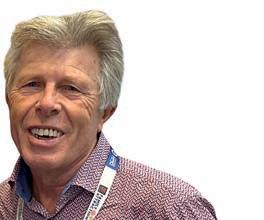
Fast forward five years and AIP is now an independent, not-for-profit trade body representing more than 370 indoor play centres. Its direction is steered by a voluntary committee of 15 leading operators and key suppliers, ensuring it remains operator-led and focused on real-world needs. The association champions operators of all sizes – from small family-run centres to large multi-attraction sites.
real-world needs. The association to large multi-attraction sites.
To reflect the UK’s geographic


To reflect the UK’s geographic diversity, AIP hosts regional networking events across England, Scotland, Wales and Northern Ireland. This year saw a significant milestone with the firstever Scottish regional event, reinforcing AIP’s commitment to operators in every part of the UK.

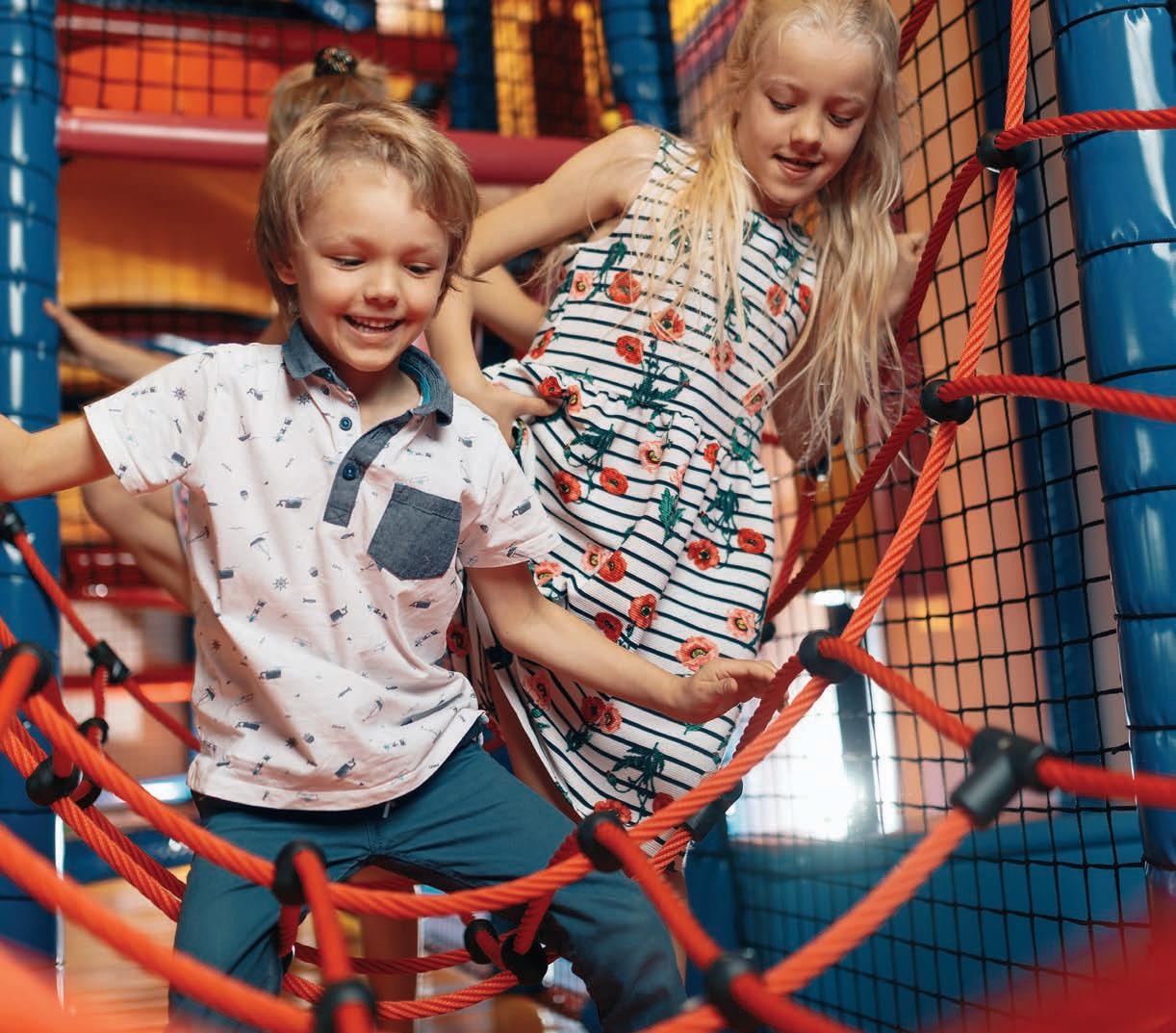
At the heart of everything AIP does is a nononsense mission: to ensure the indoor play sector is recognised, respected and thriving. AIP focuses its work on three core pillars. Firstly, the Association is on a mission to raise the profile of indoor play, making sure both the public and policymakers understand that indoor play isn’t just a fallback option for rainy days – it’s crucial for children’s physical, emotional and social development.
Secondly, AIP is passionate about raising standards and celebrating excellence. Through resources, best practice guides, and the highly anticipated Annual Play Awards, the Association showcases the creativity and innovation that exists within indoor play, while encouraging operators to keep pushing the bar higher. And thirdly, AIP is all about building a supportive, collaborative community for operators. Running a play centre can be a tough and often isolating business, so the Association has created a trusted space where operators can swap ideas, share challenges, and access the support they need from people who truly understand the day-to-day realities of the sector.
Thanks to its partnership with UKHospitality – the leading UK trade body for hospitality – AIP has
a direct voice into government consultations, ensuring the unique needs of the sector are heard in national discussions on leisure, tourism and family attractions. AIP has also delivered a game-changing contribution to the industry through its Annual State of the Industry Survey – the first-ever widespread benchmarking data for the UK indoor play sector. The survey provides critical insights into trading conditions, customer behaviour and sector challenges, helping operators make informed decisions and strengthening the sector’s voice with policymakers.
In the past five years, the AIP has evolved from a crisis response body into a UK-wide organisation and its work is far from over. The industry continues to face challenges, including the cost-of-living crisis, rising business rates and shifting consumer expectations. One of the urgent issues on AIP’s agenda is VAT on children’s play. The association is preparing to lead a sector-wide campaign, arguing that children’s play should be recognised as an essential service – critical for children’s emotional, physical, and social development – and therefore be treated like other exempt activities. The campaign aims to drive government recognition that play is not a luxury, but a vital part of community health.

This year’s Elevate event will feature a dedicated Active Kids Theatre. With the theme of “Unlocking Potential”, the two-day educational programme looks to “power the future of children’s activities
This year’s Elevate trade show, held at Excel London from 18 to 19 June, will feature a dedicated Active Kids Theatre powered by children’s activity specialist, Kidztivity. Founded by Chris Sharman in 2010, Kidztivity is a leading agency ecosystem in the children’s activities sector, driven by a mission to professionalise and empower the industry through innovation, collaboration and sustainability.
The Active Kids Theatre was created by Sharman and the Kidztivity team to inspire growth and innovation within the children’s activities industry. After a successful one-day event in 2024, this year’s two-day event, themed “Unlocking Potential: Powering the Future of Children’s Activities,” aims
Wednesday 18th June 2025
10:00 - 10:30
Active Kids Theatre Welcome and State of the Nation: Charting the Course for Children’s Activities
Chris Sharman – Kidztivity
10:35 - 11:15
The Leadership Playbook: Building Teams and Inspiring Change
Chris Sharman, Kidztivity; Rachel Brooks, Swimtime; Sarah Cressall, The Creation Station; Peter Pearson, Acrotrix
11:30 - 12:00
Seamless Experience: Transforming the Customer Booking Journey
Brett Davis, Pebble; Bobby Cole, BH Live; Adam Holland, Progressive Sports; Reece Elbourn, Let’s Leap Sports Academy
12:05 - 12:45
Partnering with Communities and Education: Inspiring Future Generations to be Active
Jen Rouse, Team GB Foundation; James Thomas, parkrun; Craig Jones, Junior Adventures Group; Marco Boi, Play Innovation; Paul Roberts, StreetGames
13:30 - 14:00
The Engagement Engine: How to Ignite Team Culture and Customer Loyalty
Helen Muller, The Engagement Engine
14:05 - 14:45
The Business of Play: Integrating FECs in Leisure Facilities
Rob Christie, Airparx; Elliott Myatt, The Play Company; Rob Cunningham, BH Live; Josh Buxton, 24Indoor
15:00 - 15:30
The Power of Parties: Turning Celebrations into Marketing Success
Chris Sharman, Kidztivity
15:35 - 16:15
Keeping Teens Moving: Tackling the Drop-Out Challenge
Chris Sharman, Kidztivity; Katie Phillips, Youth Sport Trust; Lauren Connis, Oldham Active; Sam Pearce, Lifestyle Fitness
16:30 - 17:15
Data-Driven Growth: Unlocking Niches with Insight
Craig Jones, Junior Adventures Group; Sam Godfrey-Moore, What’s on 4 Kids; Greg Dryer, miMove; Julie Allen, Active Insight

to provide professionals with the tools and insights needed to build sustainable business models and raise quality standards. Featuring workshops, networking opportunities, and thought leadership sessions, the event offers a collaborative platform for learning and professional development.
“The Active Kids Theatre is more than just an event – it’s a movement for growth, innovation and collaboration in the children’s activities sector,” Sharman says. “Our aim is to empower professionals with the tools, insights and connections they need to build sustainable businesses and deliver exceptional, life-changing experiences for children.
Thursday 19th June 2025
Together, we can unlock the true potential of this incredible industry and shape its future.”
The theatre will host a wide-ranging educational programme with a focus on children’s activities.
The programme has been designed to cater for anyone working in the children’s activity sector – from children’s activities managers, business owners and franchisee to facility managers. The Active Kids Theatre will offer opportunities to connect, network and learn with thought leaders and innovators, explore strategies for growth and quality and lead the way in creating enriching experiences for children.
09:45 - 10:15
Kidztivity Download (Practical Session)
James Robertshaw, Kidztivity
10:20 - 11:00
The Power of Sport: Inspiring and Engaging the Next Generation
Jen Rouse, Team GB Foundation; Georgina Brayshaw, Team GB Athlete
11:15 - 11:55
Quality Unleashed: Setting New Standards
Chris Sharman, Kidztivity; Kelly Cooper, David Lloyd Clubs; Deborah Jones, Proinsight; Natasha Waterfield, Oxygen Activeplay
12:00 - 12:30
Active Wellbeing: Merging Movement, Mindfulness and Play
Ellie White, Thrive with Ellie
13:00 - 13:30
Little Magic Train (Practical Session)
Gina Bale, Little Magic Train
13:35 - 14:15
Early Engagement: Innovating PreSchool and Parent & Child Activities
Craig Jones, Junior Adventures Group; Gina Bale, Little Magic Train; Amanda Frolich, Amanda’s Action Club; Chris Sharman, Kidztivity
14:30 - 15:10
Inclusive Innovations: Embracing Diversity and SEND
Ben Sutcliffe, Caudwell Children; Jack Wells, TikTok star, Amputee and Disability Advocate; Jessie Lilley, babyballet; Ali McClure, Ali McClure Education and Parenting
15:15 - 15:45
How to Harness Brilliant Behaviour
Ali McClure, Ali McClure Education and Parenting
15:50 - 16:30
Talent Transformation: Recruiting and Retaining Excellence
Craig Jones, Junior Adventures Group; Dan Grigg, Future Training; James Robertshaw, Kidztivity; Steve Brennan, Love Childcare Recruitment; Helen Muller, The Engagement Engine




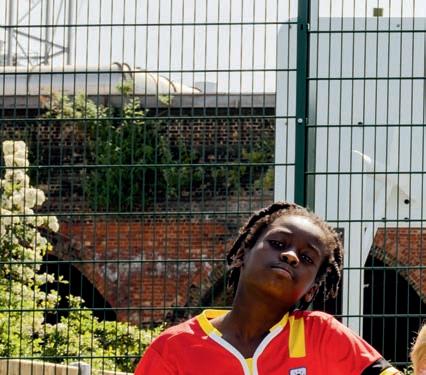
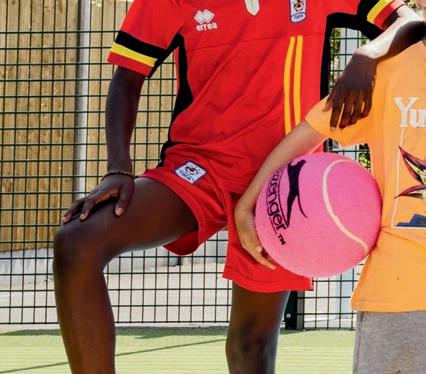

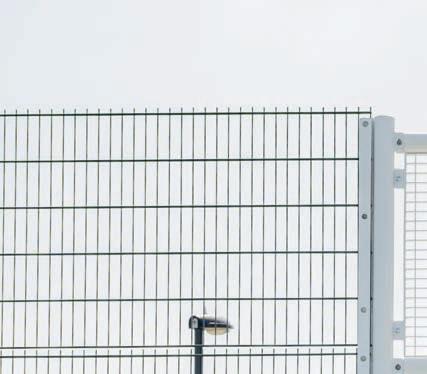
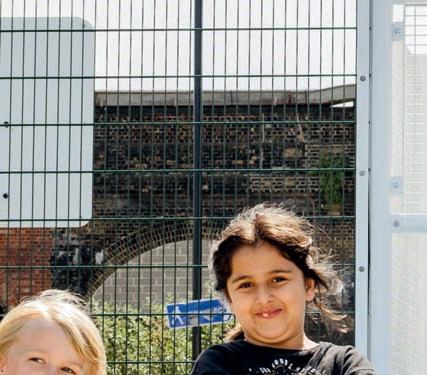

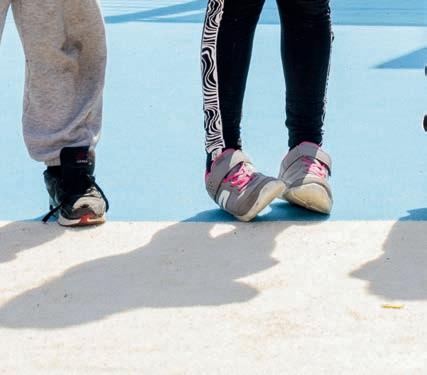




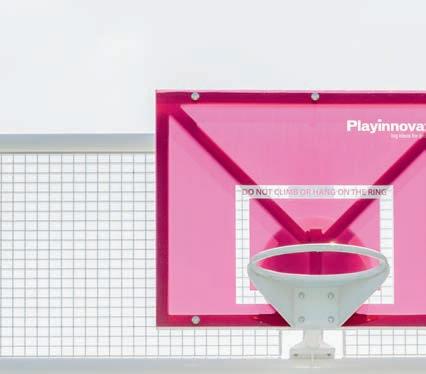

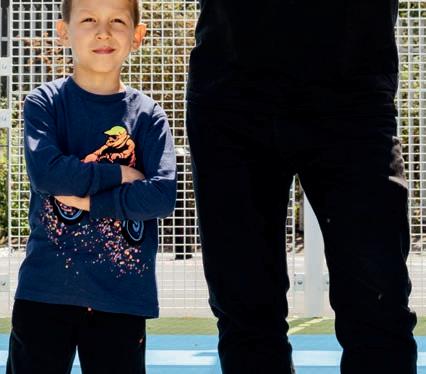
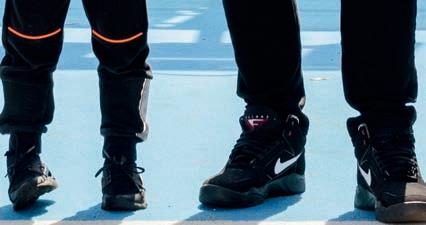











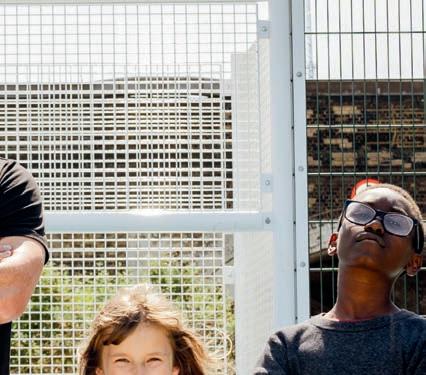
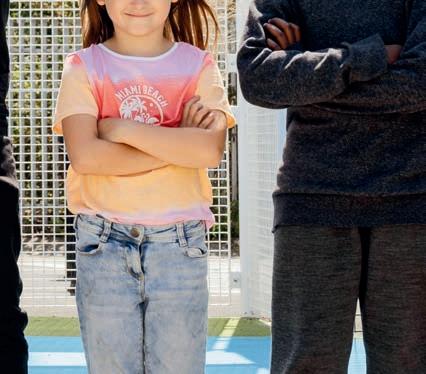


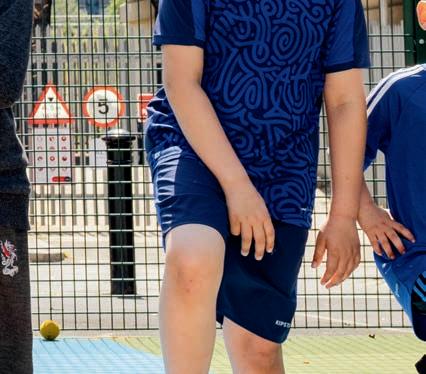
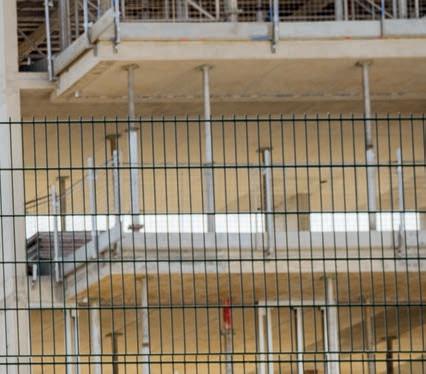
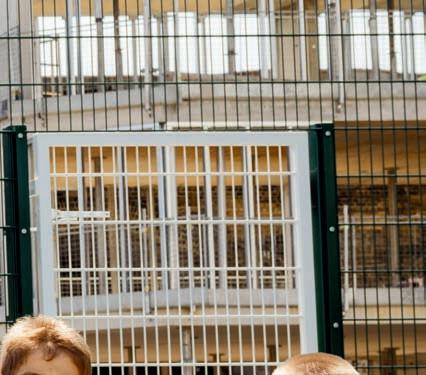
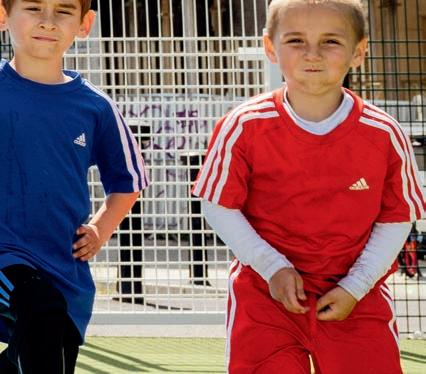
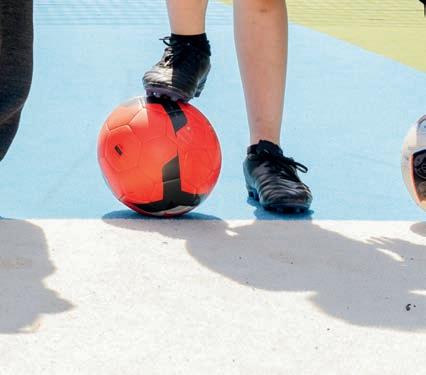
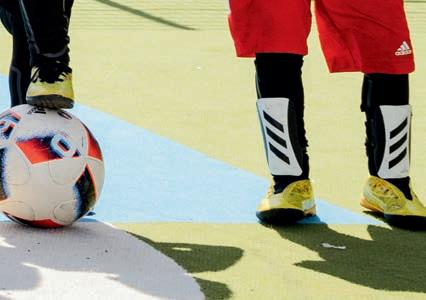
& builders of beautiful sports courts.






The recipients of the Annual Playwork Awards have been revealed. The six category winners were revealed during the National Playwork Conference – the UK’s largest national event for the playwork sector
The Annual Playwork Awards set out to celebrate all that is good about the UK Playwork sector. They were set up 23 years ago by Meynell Walter, founder of Meynell Games, who wanted to have a mechanism that would recognise and praise excellence in the playwork sector
“The awards are all about identifying and rewarding the people and organisations who have made a noticeable contribution and difference to the lives of those they work with,” Meynell says. “They are designed to recognise the hard work that the UK playworkers and organisations have put in over the past year in order to get to the point where they are today.
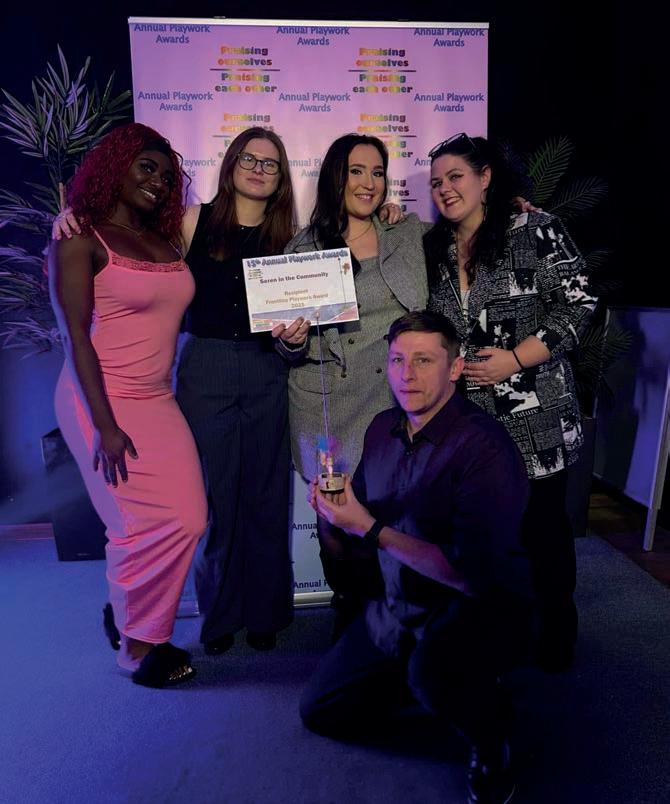
Seren in the Community won the Frontline Playwork Award
Meynell says that the Awards and the Conference play an important part in bringing the UK’s playwork community together at a time when there is fresh momentum to recognise play as a crucial part of society.
“Play is an important part of children’s lives and that play should be as free from corruption by adults as possible,” Meynell says.
“Alongside these awards comes a tremendous sense of pride. Many people forget about the playworkers that strive day in, day out, in order to offer a broad range of different play opportunities with the aim of enhancing the play opportunities of the children they work with. Even when times are tough and funds are limited, some playworker’s creativity never ceases to amaze those they work with.”
The award winners were revealed during this year’s National Playwork Conference. The event is the largest national gathering of playwork people from across the depth and breadth of the sector.
The Conference is a chance for those working in the play industry to come together and share insights and thinking, as well as learn from each other and develop their knowledge.
“Play is essential; it contributes to the cognitive, physical, social and emotional wellbeing of children and young people as well as serving a crucial evolutionary purpose. There are huge benefits and opportunities for children to engage and explore when playing; however opportunities for play have been remarkably reduced for some children.
“This can be a result of things such as hurried lifestyles and changes in family structure. This lack of play opportunities is something that we as playworkers are trying to prevent and these awards will help to raise the profile of our work and gives us the chance to praise those that have been nominated for an award.”
The Awards are supported with sponsorship from the four home nations play organisations: Play Scotland, Play Wales, Play England and Playboard NI, as well as the Out of School Alliance. Nominations for the 2026 Awards will open during the summer of 2025.

The Professional Development Award 2025
Clybiau Plant Cymru Kids’ Clubs
Clybiau Plant Cymru’s vision is to ensure out-of-school childcare clubs thrive.
“Everything we do is based on our extensive knowledge within the Out of School Childcare sector. We know that each club is different, and we know better than anyone that there is no ‘one size-fits-all’. We admire the variety of our clubs – and we use our expertise and industry knowledge to educate and support our Club Community.”
The Frontline Playwork Award 2025
Seren in the Community
Seren in the Community is a Cardiff-based charity supporting children and young people, and the wider community in Splott, Tremorfa, Adamstown and Roath.
“We are so grateful to be recognised publicly in this way and it makes standing out in the rain and going home filthy totally worth it! A massive thanks to everyone who has stuck with us through the weather, covid, staff sickness and fundraising events!”
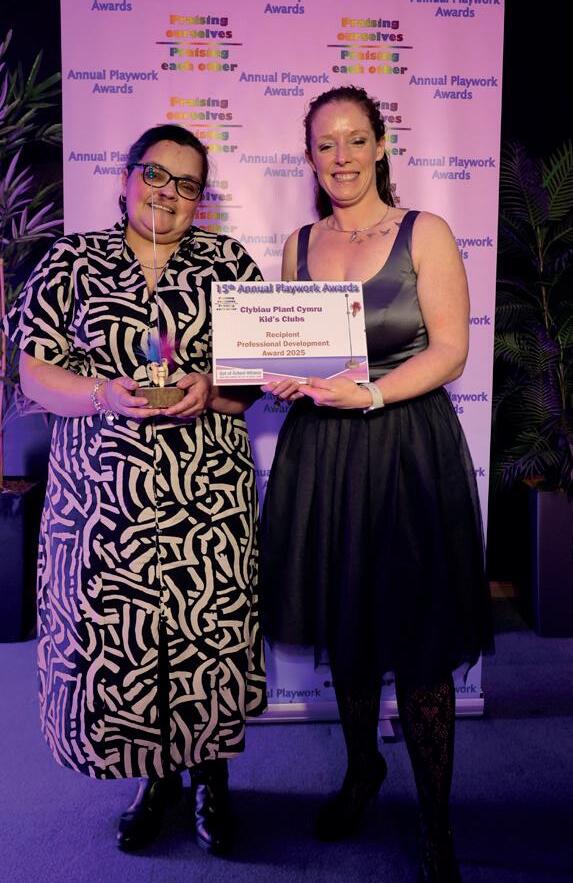
Winners: Clybiau Plant Cymru Kids’ Clubs (above) and Play 2 Nurture (below)
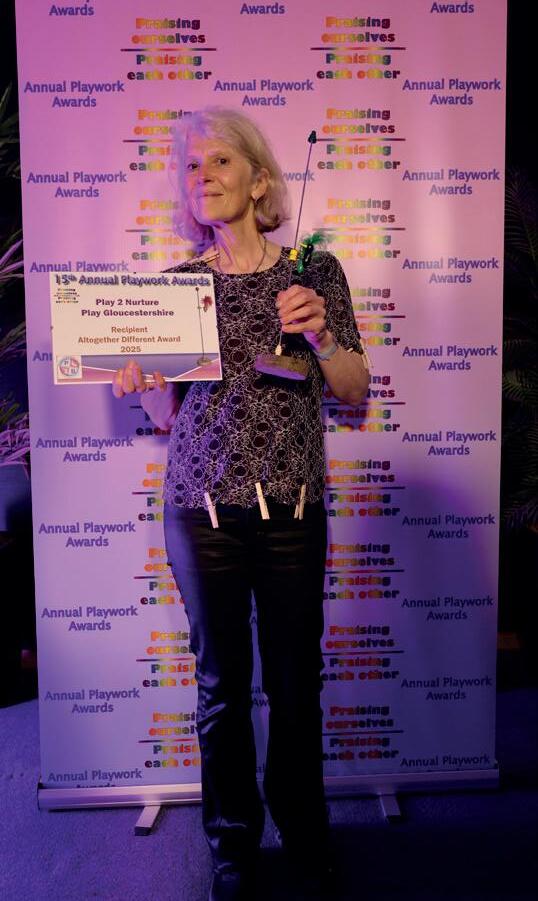
The Altogether Different Award 2025
Play 2 Nurture - Play Gloucestershire
Play Gloucestershire’s Play2Nurture project used the therapeutic power of play to create the conditions where children facing adversity build resilience and have better chances in life. It further develops Play Gloucestershire’s emerging play nurture approach, which builds on 15 years’ experience of running a universal Play Ranger service in disadvantaged local communities and targeted work in school settings. The play nurture approach works with small groups of identified children using the therapeutic power of play to offer respite from and to help children cope with the ups and downs of daily economic and emotional hardships. In this, the Play Rangers work at the intersection of playwork and play therapy.
The nominations for this Award were so strong that the judging panel also wanted to acknowledge the work of Project Play

Winner: Haringey Play Association supports children’s right to play
Project Play was founded in August 2018 by volunteers working in northern France to support displaced communities sleeping in informal camps. On food distributions, friends Claire and Caia realized there was a stark lack of support and protection available to children and young people living in these informal camps in Dunkirk. They therefore decided to create a project to provide safe spaces and play for the children, with the goal of supporting their all-round wellbeing.
Project Play ran its first session in November 2018. To date, it has provided play at twelve different sites: six accommodation centres, a day-centre, a safe house and four informal camps. Project Play has worked with hundreds of children and run, on average, six sessions every week. It has welcomed and said goodbye to dozens of talented volunteers with a range of skills and expertise.
The Play and Community Development Award 2025 Haringey Play Association
The association supports children’s right to play and asserts that play is “essential to every child’s life, a biological need which is vital for children’s development as well as a right enshrined in Article 31 of the United Nations Convention on the Rights of the Child”.
“We follow the Playwork Principles which describe play as ‘what children and young people do when they follow their own ideas and interests, in their own way, and for their own reasons’. We
are committed to promoting children’s agency and providing spaces and opportunities where they are free to be children and make their own decisions without unnecessary adult interference.
“Our services are entirely free at the point of use and we embrace the diversity of our community.”
The UK Playwork Sector Award 2025
PlayBoard NI
PlayBoard NI is the region’s leading play organisation. It strives to be an effective, innovative and responsive organisation, which brings evidence-based intelligence and best practice together to empower our members, children and young people, parents, communities and individuals, while influencing continuous improvement in the delivery of play services. It does this through a combination of service delivery and development; research; and campaigning and lobbying. It also works in partnership with others to put play on the agenda
The Paul Bonel Special Mention Award 2025
Mick Conway
The former Chair of London Play is one of the pioneers – alongside Paul Bonel and Kim Holdaway – of Playday, the national day for play. Playday highlights the importance of play in children’s lives and was set up back in 1986, following cuts on school-based play centres and adventure playgrounds in London.
Conway came up with the notion of having a day for play; a notion which caught on and is now celebrated yearly to raise awareness about the importance of play in children’s lives.



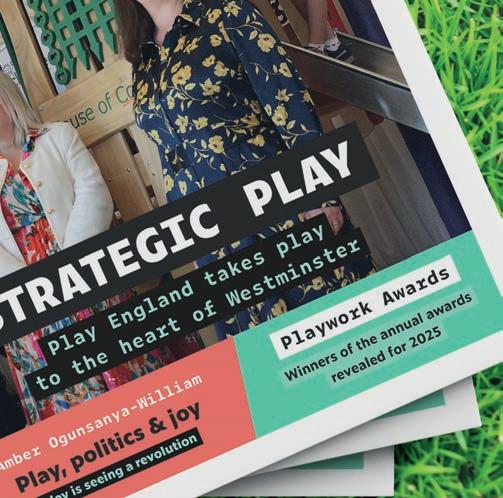



Creating inclusive and accessible play spaces is increasingly important. PlayNation rounds up some of the latest new projects and equipment which have been designed and created with inclusiveness at their heart

A fully inclusive outdoor playground for Barnet
Fair Play Barnet has been described as the UK’s first maximum accessibility and inclusive playground. Located in Victoria Recreation Ground, Barnet, London, the purposefully designed playground was born from a three-way collaboration between Barnet Council, expert parents and the Council’s play contractor, KOMPAN.
In early 2022, the Council was approached by a local resident who was keen on building a playground where people of all abilities could play together. With a leisure centre nearby to provide key supporting facilities such as Changing Places toilets, parking and a café, the council identified Victoria Recreation Ground to be an ideal location.
Designed for children and adults with disabilities, it includes a range of play equipment and features, such as spinning structures, rocking structures, sensory panels, and solid safety surfacing.

Fair Play Barnet features solid safety surfacing, sensory panels and adaptive play structures
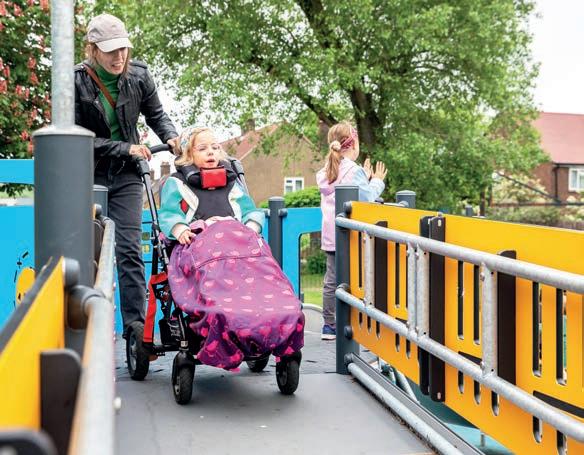
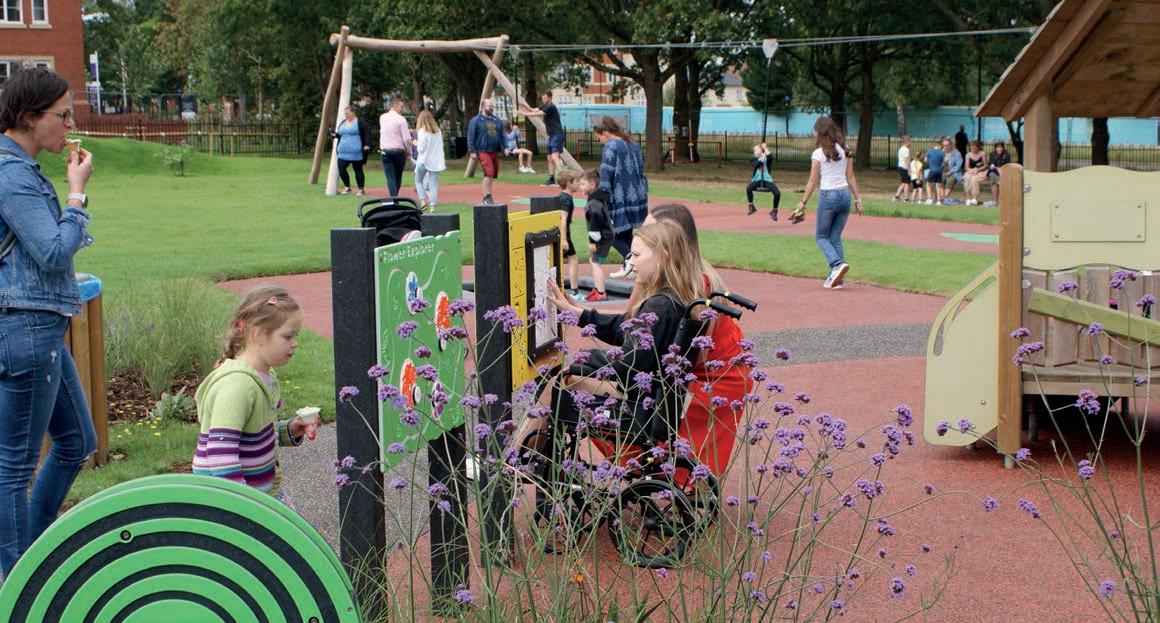
Eibe partners with local community to create inclusive play space
During the COVID-19 pandemic, when studying from home became the new normal, a local community member called Dylan found a captivating project: designing a new community play area in the newly developed Wellesley estate in Aldershot, Hampshire. Envisioning a space that could be enjoyed by all, including those in wheelchairs, Dylan dove into research, exploring local play environments and potential suppliers.
Not content with just imagining possibilities, Dylan pushed to present his plan to the local council and Grainger PLC – the developer of the Wellesley estate – hoping to see his ideas come to life on the expansive greens adjacent to his residence. The timing was perfect, as Grainger PLC was required to expand existing recreational spaces to foster community engagement. Dylan’s proposals were thus integral to consultations with potential suppliers, outlining local desires for the recreational space.
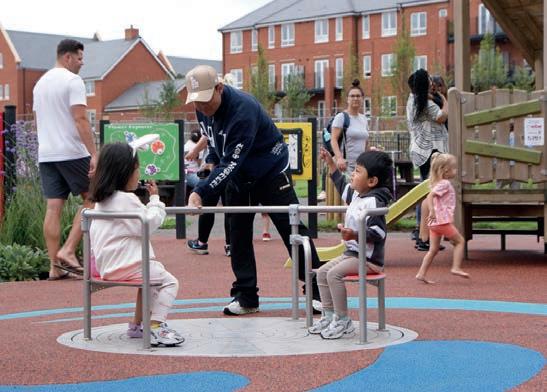
Dylan’s vision brings a fully inclusive, wheelchair-friendly playground to Wellesley’s new community greens
In early 2020, Eibe Play had been commissioned to install several play structures in the area’s initial developmental phase. Given Eibe Play’s prior installations and strong reputation, Grainger PLC engaged them to tailor Dylan’s concept into a fully articulated design aimed at transforming the area into a cherished community hub. Eibe Play crafted a playground that aligned with their mission and
responded to the community’s aspirations, as Dylan initially envisioned. They aimed to create a year-round accessible space promoting both physical and social skills for children aged 2-14, ensuring inclusion for every visitor, regardless of ability. A wetpour surface was selected to guarantee durability and accessibility, which is essential for a venue welcoming both wheelchairs and strollers. The play equipment was chosen from Eibe Play’s diverse collections and includes sensory play options enhancing the tactile experience of the area.
The grand opening was a community spectacle, welcoming 200 special guests who celebrated the unveiling with enthusiasm, marked by Dylan cutting the ribbon.

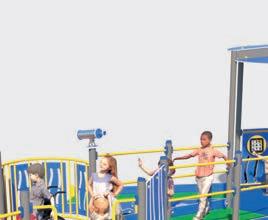
Wicksteed launches its Universally
Wicksteed has introduced its new Universally Inclusive range, which consists of six thoughtfully designed multiplay units that welcome all ages and abilities to join in the fun.
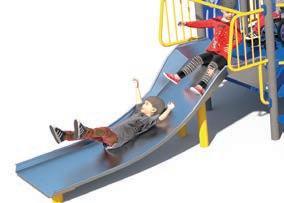



The range has been created with inclusivity in mind. From open ramp access and dual-height handrails to bright yellow accessories for the partially sighted, the aim is to ensure no child feels left out. The equipment includes features such as sensory play panels that spark curiosity and encourage cooperation, wavy bridges that offer a fun challenge for both those on foot and those on wheels and double-width slides so carers and children can ride side-by-side.
Jupiter Play and Leisure won the SAPCA Award 2025 for Small Project of the Year for its work on an inclusive playground at Stanway Lakelands Community Centre, Colchester. Jupiter was commissioned to design, supply and install a play facility aimed at encouraging children of all abilities to be able to interact and play together.
The clients – Colchester City Council and Essex County Council Short Breaks for Disabled children and Young People – put together a brief for the playground that prioritised true inclusion. The brief asked for elements such as physical play, imaginative and social play, individual and quiet play as well as risk and challenge for all users. The brief also asked for consideration to rest and recharge spaces – including seating and shaded areas – and for materials and colours to be used in a way to not over stimulate those with sensory issues.


There’s also quiet hammock seating, tucked beneath the towers – ideal for a little downtime – and a telescope to inspire imaginative adventures. Optional roof coverings offer shade and shelter, while clever layout choices reduce surfacing needs without compromising on play value.
With up to 16 inclusive play features and a flexible modular design, the Universally Inclusive range delivers a truly shared play experience—for everyone.
“At Wicksteed, we believe that play should be for everyone,” a company spokesperson said.
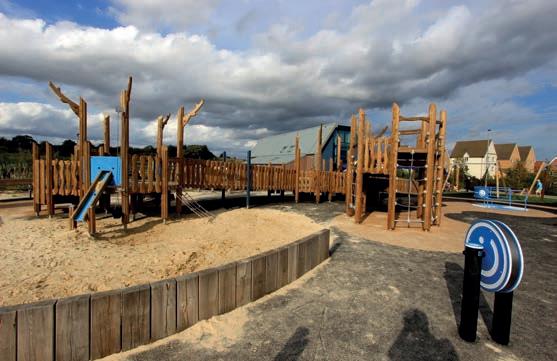
A bespoke, wheelchairaccessible multi-play unit and sensory zones let children of all abilities play side by side
Jupiter designed and created a bespoke unit to provide a range of opportunities for different kinds of play, with sensory play being a priority. The colour palette was kept deliberately neutral, with gentle pops of blue helping connect to their community centre. This allows neurodiverse children to not get overstimulated
and be able to spend more time engaging with the play.
The design provides a journey through the space, inspired by the adjacent community centre and country park.
The most comprehensive element was the bespoke multi-play unit designed by the team to be fully accessible by wheelchair users. This is supplemented by a wide range of accessible and sensory play items.
Michael Hoenigmann, MD of Jupiter Play, says: “We wanted to create a space that children with special educational needs, sensory needs, and those with mobility related issues including wheelchair users, could play and interact alongside all other children.”
Proludic introduces inclusive seesaw
The Proludic Inclusive Seesaw has been designed with accessibility and safety in mind and can accommodates up to six users, including two wheelchair users. Key features include wheelchair access on both sides, a reliable wheel locking system and a spring and shock-absorbing mechanism that delivers smooth, stable rocking movements. The seesaw’s platform supports up to four standing children, facilitating shared play experiences and fostering social interaction.
Suitable for children aged three and above, the equipment supports various developmental functions such as balance, coordinated movement,
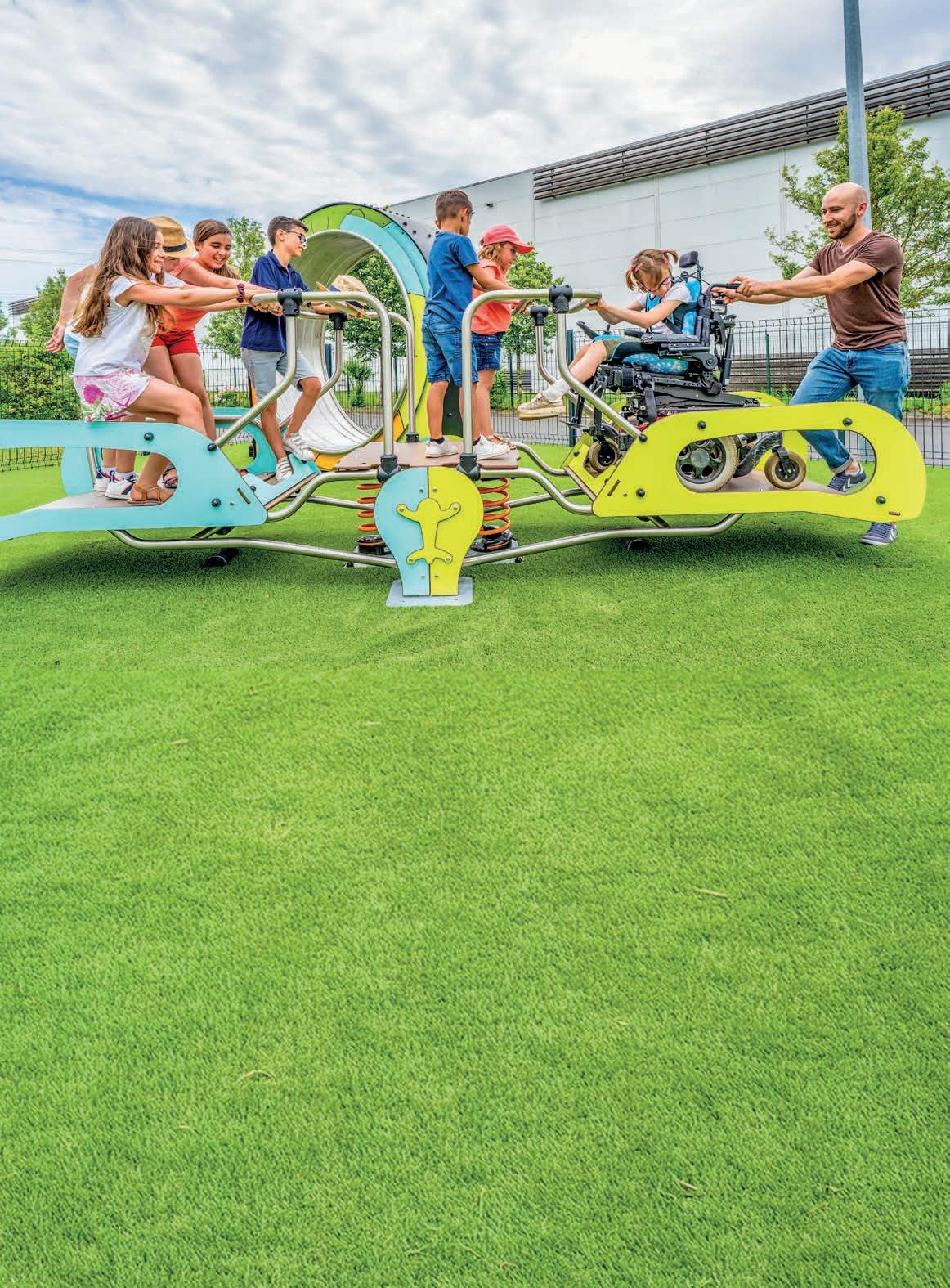
and social interaction. Its ergonomic elements – such as safety side panels, metal handles, and wide platform areas – enhance accessibility and comfort, enabling children of differing abilities to participate confidently and securely.
Developed through research and testing, the Proludic Inclusive Seesaw offers a dependable, engaging play experience aligned with modern standards of inclusive design. It effectively combines functionality, safety, and developmental value in a single play structure.
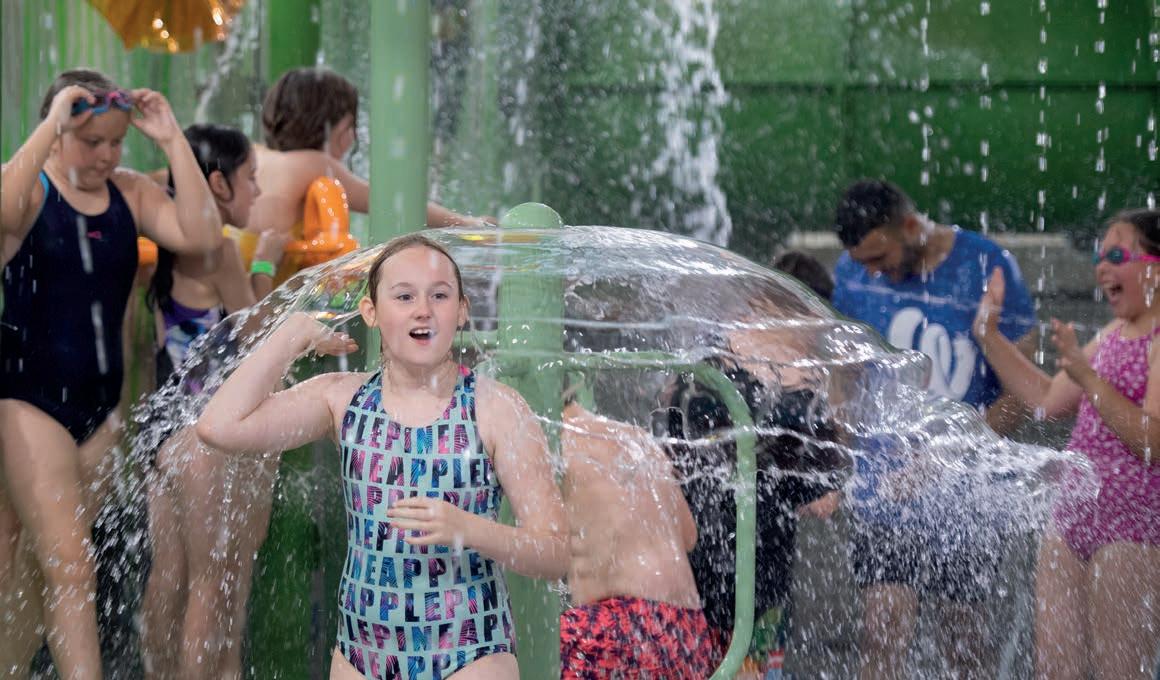
The Wave water park in Coventry is considered one of the most accessible leisure centres in the UK. All water park levels are connected via a spiralling ramp to ensure all ages and abilities can access the fun.
Ustigate Waterplay and Vortex were part of the team that collaborated to establish the water play at The Wave. Their tailor-made Elevations fits around The Cyclone’s plunge pool, utilising the entire footprint to include as many items as possible to maximise the play value. Exchanging steps for footbridges enabled an 85% accessible scheme for everyone to enjoy.
The Reef splash zone is a zero depth playscape that eliminates barriers of access, resulting in a level playing field for everyone. It includes gentle ground sprays and high octane and exhilarating splashes to appeal to water confident, thrill seekers too.
Each location has a multitude of products with differing water effects, each spraying in a different direction to enhance Coventry’s all-round experience.
The choice of colours delivers an essence of the outdoors inside; utilising the colours green and brown to create stems from the ground up and grassy graphics on the panels to deliver pastures new. The concept at The Wave is a sensational
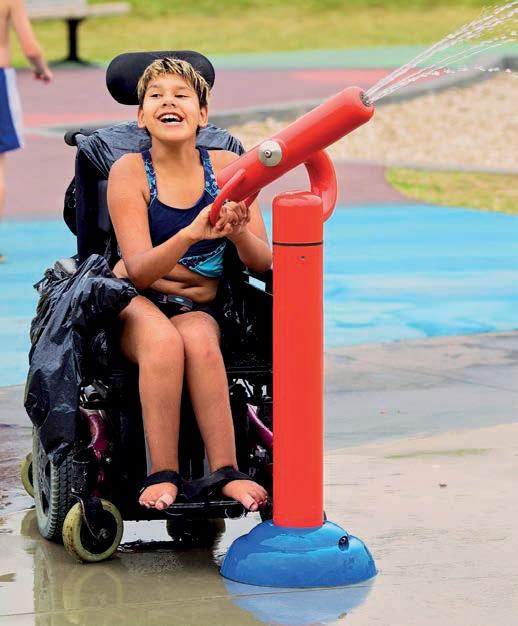
water meadow full of interactive and sensual elements to enlighten and enhance everyone’s experience through sight, sound and touch.
The design and build teams fulfilled every inclusive promise in establishing the best leisure facilities inside The Wave. Attention to detail in design leads to higher standards of inclusivity and accessibility that everyone can benefit from in their lives.
Play specialist, Playscheme, used inclusive design to transform Bamburgh Castle’s play area into a truly accessible haven for all. Building upon the site’s legacy as a beloved community space since 2009, the revitalisation prioritised ensuring every child, regardless of ability, can fully engage and enjoy the play environment. Innovative, inclusive features are central to this transformation. The iconic Bamburgh Pirate Ship

Swadlincote Woodlands is a stunning 80-acre urban park in South Derbyshire which welcomes thousands of visitors every year. Its play area is extremely popular, but by late 2024, it was overdue for a thorough regeneration. Sutcliffe Play partnered with South Derbyshire District Council to help this rural space turn over a new leaf. Their design strove to meet the council’s desire to see greater inclusive play opportunities for children with disabilities. The finished space includes a bespoke Woodland Spider climbing frame, and it is complemented by a Nature Activity Centre, with its ground level design enabling children in wheelchairs or pushchairs to join the fun. Other additions include an inclusive Communications Panel and a perfectly balanced Four-Way Seesaw. Elsewhere, a Single Point Swing can accommodate up to five users and its inclusive, open design allows children of different abilities to enjoy its immense play value together. Nearby, a new, 20-metre Cableway sits parallel with an existing zipline, creating a unique racing zone.
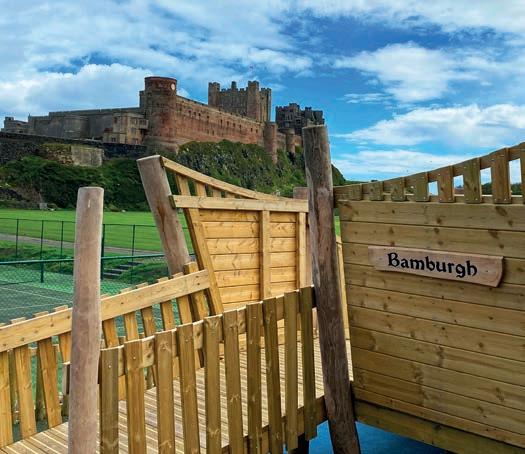
now boasts a DDA-compliant ramp, guaranteeing access for all. A basket swing and inclusive roundabout further enhance the range of accessible play experiences. Safety and ease of access were paramount, evidenced by the installation of an all-weather surface and levelled areas. This project underscores Playscheme’s commitment to inclusive design, demonstrating how thoughtful planning and construction can create play spaces where every child feels a sense of belonging and can create joyful memories together.
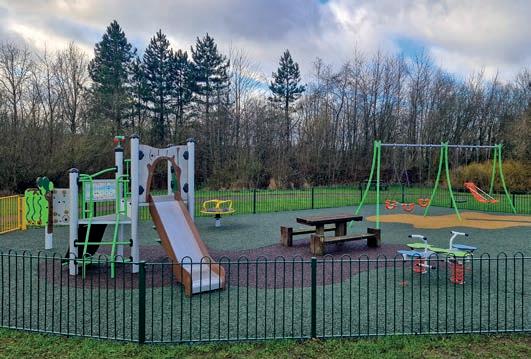
Sutcliffe Play’s makeover at Swadlincote Woodlands features wheelchair-friendly climbing frames, inclusive swings and a new 20 m racing cableway
Chris Worman MBE from SDDC said: “Sutcliffe Play brought a professional approach, and the play area has been a big hit. The car park is now full on weekends and on school holidays, which is great to see!”
